Statement: ILGA-Europe calls on Italian government to end anti-LGBTI rhetoric and violence
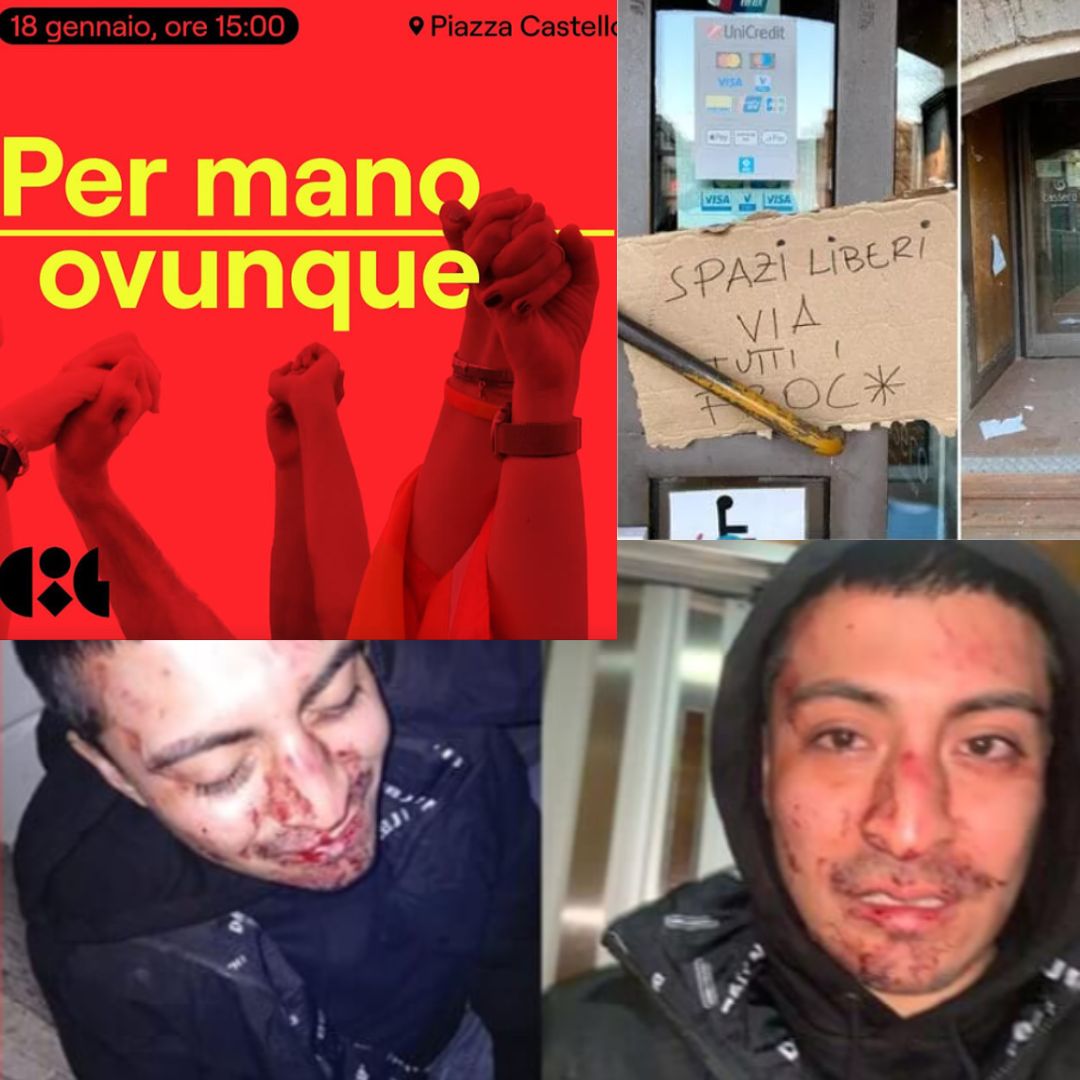
ILGA-Europe stands in solidarity with Italian LGBTI people who continue to face increased hatred and violence and calls on the Italian government to stop feeding a growing divide in Italian society
Over the last weeks, Italy has seen a new surge of LGBTI-phobic violence. There have been no less than four hate-motivated attacks on LGBTI people in the last four weeks, prompting a large manifestation tomorrow in Milan demanding the government take action.
According to the ILGA-Europe’s Rainbow Map, Italy still lacks crucial legal protection for LGBTI people, such as comprehensive hate crime and hate speech laws that would protect LGBTI people, as well as other minorities, from hatred and violence. This legislative gap is even more worrying at a time when violence against LGBTI people in Italy is alarmingly on the rise, exacerbated by the use of openly LGBTI-phobic rhetoric by some politicians. The persistent “witch hunt” against so-called “gender ideology” has created a fertile ground for justifying and amplifying LGBTI-phobic hatred within society. Such narratives not only perpetuate discrimination but also embolden those who act on their prejudices, further endangering the lives and well-being of LGBTI people.
In addition to the increased frequency and severity of LGBTI-phobic attacks (one of the attacks on New Year’s Eve, perpetrated by ten assailants on a gay couple who were holding hands, resulted in serious injuries to the couple – including a head injury and broken nose), the Cassero LGBTQIA+ Centre was vandalised with threatening messages which read: “Free space from faggots”. This targeting of an LGBTI organisation is evidence of the more systemic nature of the issue – those who would want to commit LGBTI-phobic violence have been emboldened by the rhetoric and actions of the ruling parties. A legislative project, the so-called ‘Zan’ law, was voted down in 2021. The law would have designated violence against LGBTI people and disabled people, as well as misogyny, a hate crime. Giorgia Meloni’s party voted against the law and publicly celebrated its defeat.
In light of these troubling developments, we urgently call on political leaders to initiate a meaningful process to establish legal protections for LGBTI individuals in Italy. Most pressingly, we demand that politicians, particularly influential figures within the government—such as Prime Minister Giorgia Meloni and Minister Eugenia Roccella—publicly and unequivocally condemn the growing wave of LGBTI-phobic violence.
Regardless of political considerations, it is the bare minimum for a government that claims to uphold democratic values to take a firm and unwavering stance against violence, especially when it targets minorities. Accepting any form of violence as “the new normal” is incompatible within a society that aspires to equality, dignity, and justice for all.
We urge immediate action to ensure that Italy will return to being a safer, more inclusive country where everyone is protected and valued, regardless of their sexual orientation, gender identity or sex characteristics.
How to win the fight against conversion practices in Europe
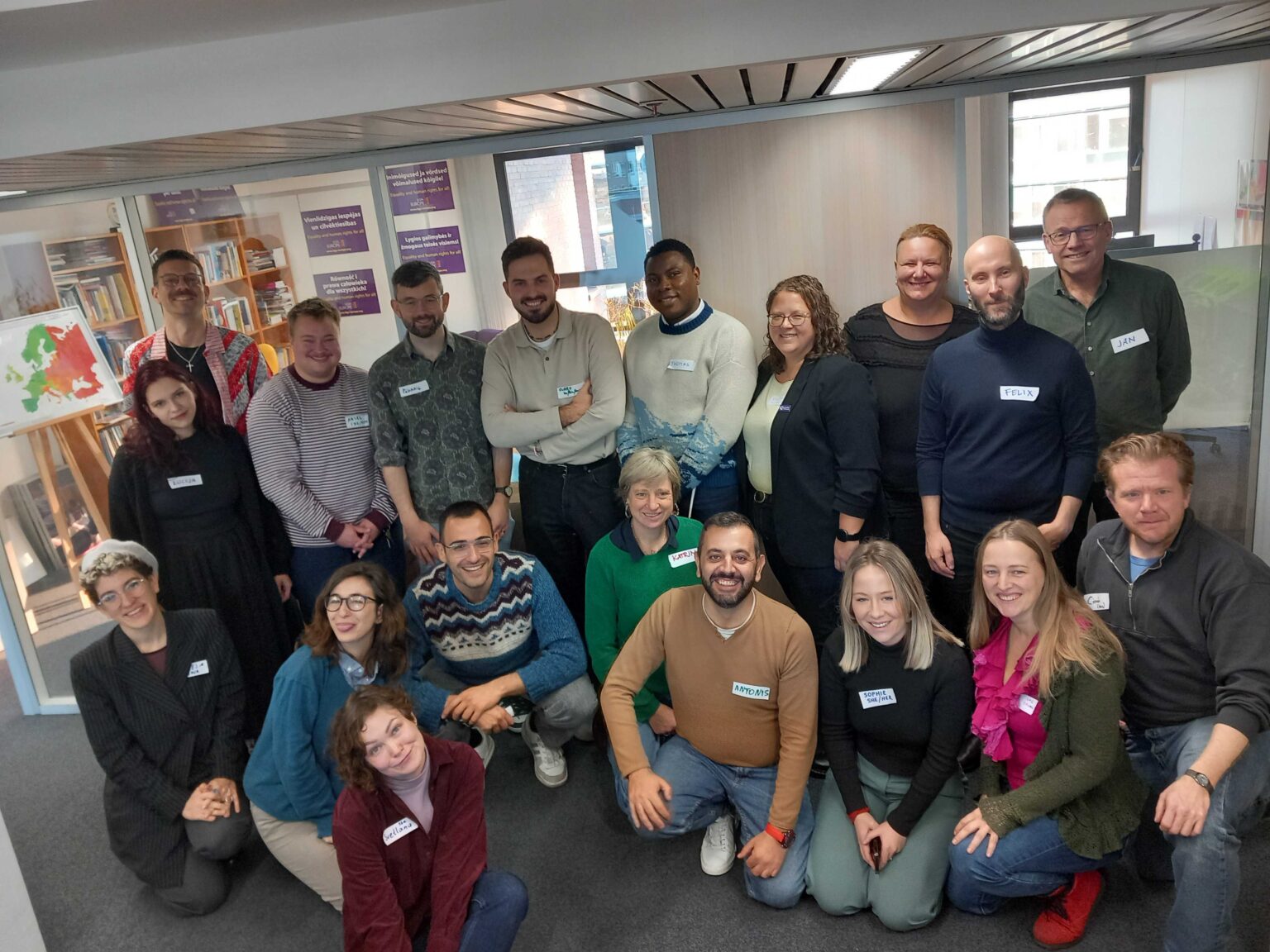
Activists across Europe are working to end conversion practices, but the insidious and underground methods out there of trying to change a person’s sexual orientation or gender identity make for a battle against many odds.
At the ILGA-Europe offices we recently hosted a meeting with activists from different parts of Europe to discuss the way forward for working to end conversion practices. For this blog, we sat down with some of them to discuss the complexities involved.
One of the key messages that emerged from the discussion was the need to expand the public’s understanding of conversion practices. While many still associate these practices with extreme forms of torture – such as electroshock therapy – the reality is more subtle. Conversion practices often take covert forms that still cause significant harm.
“Conversion practices might not always look like torture, but the effect of them is the same,” Erin Lux from Equality Scotland explained. “It is a process of trying to change or suppress who a person fundamentally is.” Curro Peña Díaz from No Es Terapia added, “What we think of as conversion practices – violent therapies – are often much more subtle and insidious. They can appear helpful, but they’re actually harmful.”
The covert nature of these practices makes them difficult to identify and combat. As Parvy Palmou from The Greek Transgender Support Association pointed out, “Most conversion practices are done behind closed doors, making them hard to prove.” Thomas Ologo from Inter-LGBT in France echoed this, noting that many conversion therapies have gone underground. He also emphasised the need for continued education, saying, “We need to ensure that people – especially professionals – understand the nuances of conversion practices so they can help prevent them.”
This shows the importance of shifting the conversation to understand that conversion practices are still widespread.
Do conversion practice bans work?
Many activists agree that while a ban on conversion practices is a necessary starting point, it is not enough. In countries where bans exist, these practices still occur underground. Aksel Emil Houmann from LGBT+ Denmark said, “A ban is not enough. We need to change the belief that queer people are broken.”
Parvy Palmou also pointed out the limitation of bans, particularly in Greece, where conversion practices are banned for minors but not for adults because adults have the capacity to provide consent. “Can someone truly consent to the torture of their own identity?” she questioned.
“By collaborating with other groups, like children’s or women’s organisations, we become stronger and more effective.”
Askel Emil Houmann, LGBT+ Denmark
For bans to be effective, they need enforcement, public awareness, and comprehensive support systems. Erin stressed: “We need to raise awareness so people understand that conversion practices are still happening and that we can stop them through both legislation and support services.”
Activists also highlight the importance of working with a broad coalition of allies. Aksel added, “By collaborating with other groups, like children’s or women’s organisations, we become stronger and more effective.”
Not simply passing laws
Alongside legal measures, activists emphasise the need to protect victims and change public attitudes. According to Curro Peña Díaz: “We need protective measures to empower victims and help them escape these harmful practices.”
Rosario Coco from Gaynet in Italy highlighted the importance of education: “We need to reach all stakeholders – mental health professionals, human rights organisations – because conversion practices involve many actors.”
Ultimately, the fight is not just about passing laws, but about shifting societal attitudes. Rosario pointed out, “A ban is crucial, but we must also move public opinion, influence institutions, and educate civil society.”
The fight to end conversion practices is complex but not impossible. Activists across Europe are leading the charge, with strategies that include raising awareness, enforcing legislation, building coalitions, and changing public perceptions. As Curro Peña Díaz summed up: “We need to ensure people know conversion therapy is still happening and that it’s extremely harmful.”
Russia failed to respond adequately to politician’s homophobic verbal assault, European Court finds
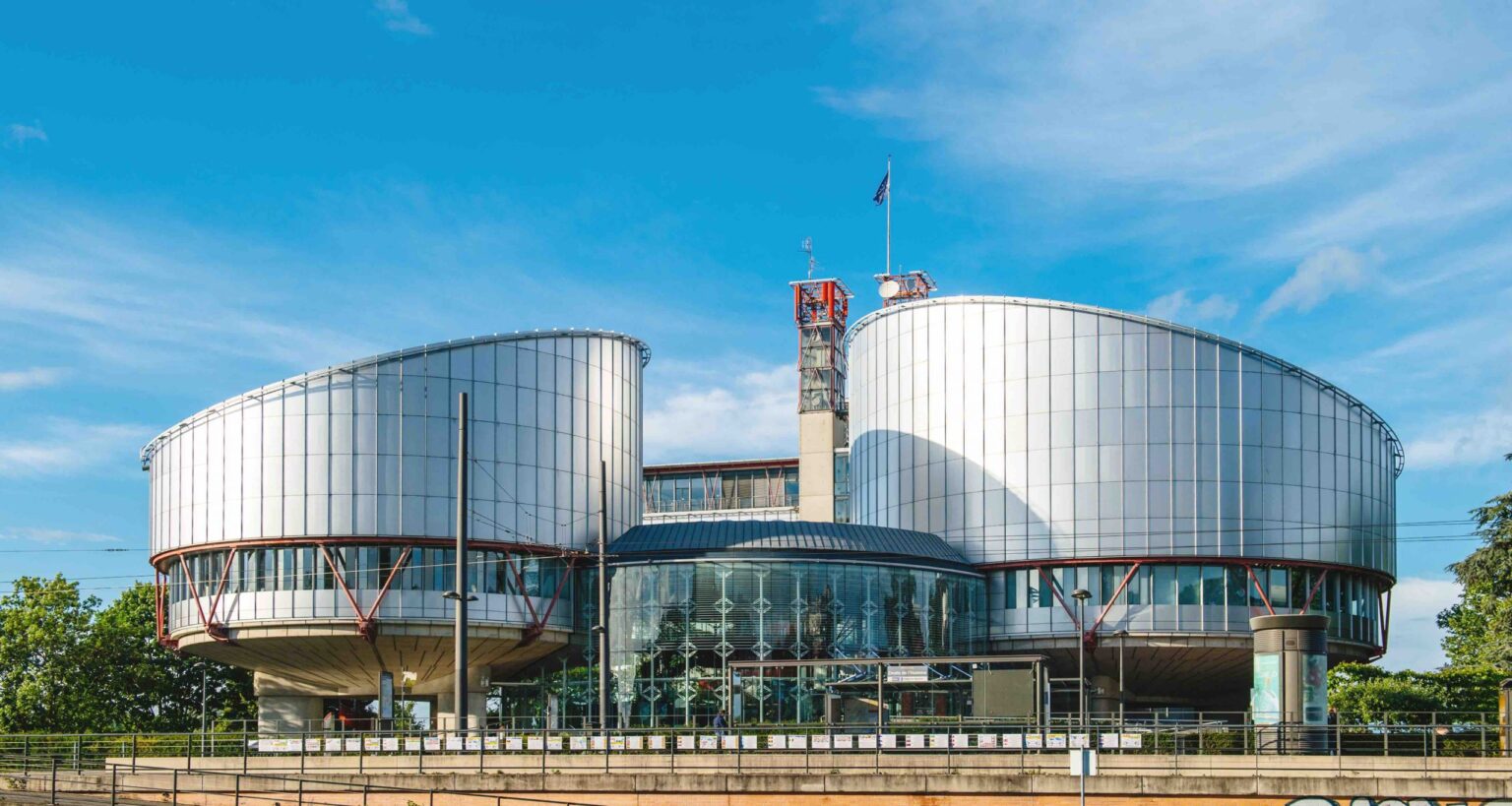
The European Court of Human Rights has found that Russia’s failure to respond adequately to homophobic verbal assault and physical threats by a politician against LGBTI activists is in breach of their human rights.
Last week, in case Yevstifeyev and others v. Russia, lodged by victims of homophobic hate speech in Russia, the European Court of Human Rights found a violation of Article 8 of the European Convention on Human Rights (right to private and family life), together with Article 14 (prohibition of discrimination).
The applicants are LGBTI rights activists who participated as part of the LGBTI column in a rally against hatred in St Petersburg where they had to face homophobic insults and physical threats from a well-known politician and member of the St Petersburg Legislative Assembly, who attended the rally. He also spread false information concerning the applicants.
The applicants lodged criminal complaints but the authorities refused to register them, claiming the politician had allegedly merely expressed his personal opinion about the LGBTI community. The applicants also lodged an administrative offence complaint and a civil complaint, which were dismissed on the grounds that the statements did not amount to insult, as they were not directed against specifically named individuals.
The Court first confirmed that the applicants had been directly targeted by the verbal assault and that the statements at issue affected their psychological well-being and dignity, and therefore fell within the sphere of their private life.
As to the authorities’ refusal to register the criminal complaints, the Court found that the domestic authorities had failed to strike a fair balance between the applicants’ rights to respect for their private life and to be protected from discrimination on the ground of sexual orientation on one hand, and the public interest in protecting freedom of expression on the other hand.
Turning to the administrative complaint, the Court found that the domestic authorities did not provide relevant and sufficient reasons for dismissing the administrative complaints. Lastly, as regards the civil proceedings, the Court ruled that, by finding that the applicants were not affected by the contested statement, the civil courts had failed to acknowledge the applicants’ rights to respect for their private life and to protection from discrimination on the ground of sexual orientation. The Court made clear that, contrary to the civil courts’ rulings, the politician’s statements could not be construed in a neutral way and were openly homophobic, had been particularly aggressive and hostile in tone, and included physical threats against the participants in the rally.
As a result, the Court concluded that the domestic authorities failed to comply with their positive obligation to respond adequately to the verbal assault and physical threats motivated by homophobia directed against the applicants. It recalled its previous ruling that “failure to address such incidents can normalise hostility towards LGBTI individuals, perpetuate a culture of intolerance and discrimination and encourage further acts of a similar nature.” The judgment can be accessed here.
Seeking justice and dignity for Uzbekistan’s LBQT women

Highlighting the hidden struggles of LBQT women in Uzbekistan amid calls for decriminalisation
Trigger warning: This story includes descriptions of torture and violence.
As the global community marks the 16 Days of Activism against Gender-Based Violence, the hidden struggles of LBQT women in Uzbekistan bring forward urgent calls for decriminalisation and systemic change. Uzbek activists, working tirelessly to amplify these voices, underscore that criminalisation of LGBT identities and strict patriarchal norms create conditions of unchecked violence and discrimination for lesbian, bisexual, and transgender women, who face isolation and danger within their own communities and families.
Among these stories of courage is that of Dinora (name changed), a transgender woman who has endured years of persecution and hardship. Detained under Article 120—a law criminalising “sodomy”—Dinora was tortured for simply living authentically. Her experience reflects the resilience demanded of Uzbekistan’s LBQT women. Despite her trauma, Dinora continues to advocate quietly, offering support to others in need.
Similarly, Gulnora, Zilola, and Manzura (names changed) navigate a society that views their identities as threats to family honour. Gulnora faced intense guilt and rejection, trapped between her true self and the societal expectations forced upon her by her family. Zilola, caught expressing affection for another woman, was forced into marriage and subjected to humiliating rituals to “cure” her. Manzura, who found some support within a loving relationship, still faces violent consequences from family members whenever her sexual orientation is revealed. Their lives embody the immense toll of societal and familial pressures, yet each woman has found ways to stand strong in the face of ongoing abuse.
Culture of impunity
The criminalisation of same-sex relations among men promotes a culture of impunity, embedding harmful stereotypes that target all LGBTI people. For LBQT women, especially, rigid gender expectations amplify their suffering, leaving them trapped between cultural norms and a legal system offering no recourse or protection. These women’s stories illustrate not only the isolation they face but also the extraordinary courage required to pursue dignity and self-acceptance.
As we share these voices during the 16 Days of Activism, we are reminded that the fight against gender-based violence must be inclusive of all women, regardless of sexual orientation or gender identity. Real justice and dignity for LBQT women in Uzbekistan demand urgent legal reform: the decriminalisation of same-sex relationships and protections for sexual orientation and gender identity within domestic violence laws.
For Dinora, Gulnora, Zilola, Manzura, and countless others, we must continue to call for a world where they can live freely and safely, without fear of persecution. Their courage in sharing these stories is a testament to resilience—a resilience that we hope will inspire lasting change.
For more on the experiences of LGBT people in Uzbekistan and the urgent call for decriminalisation, read the full report in English.
The Turkish LGBTI+ community resists bans on Pride events again this year, amid increased repression from the Turkish government
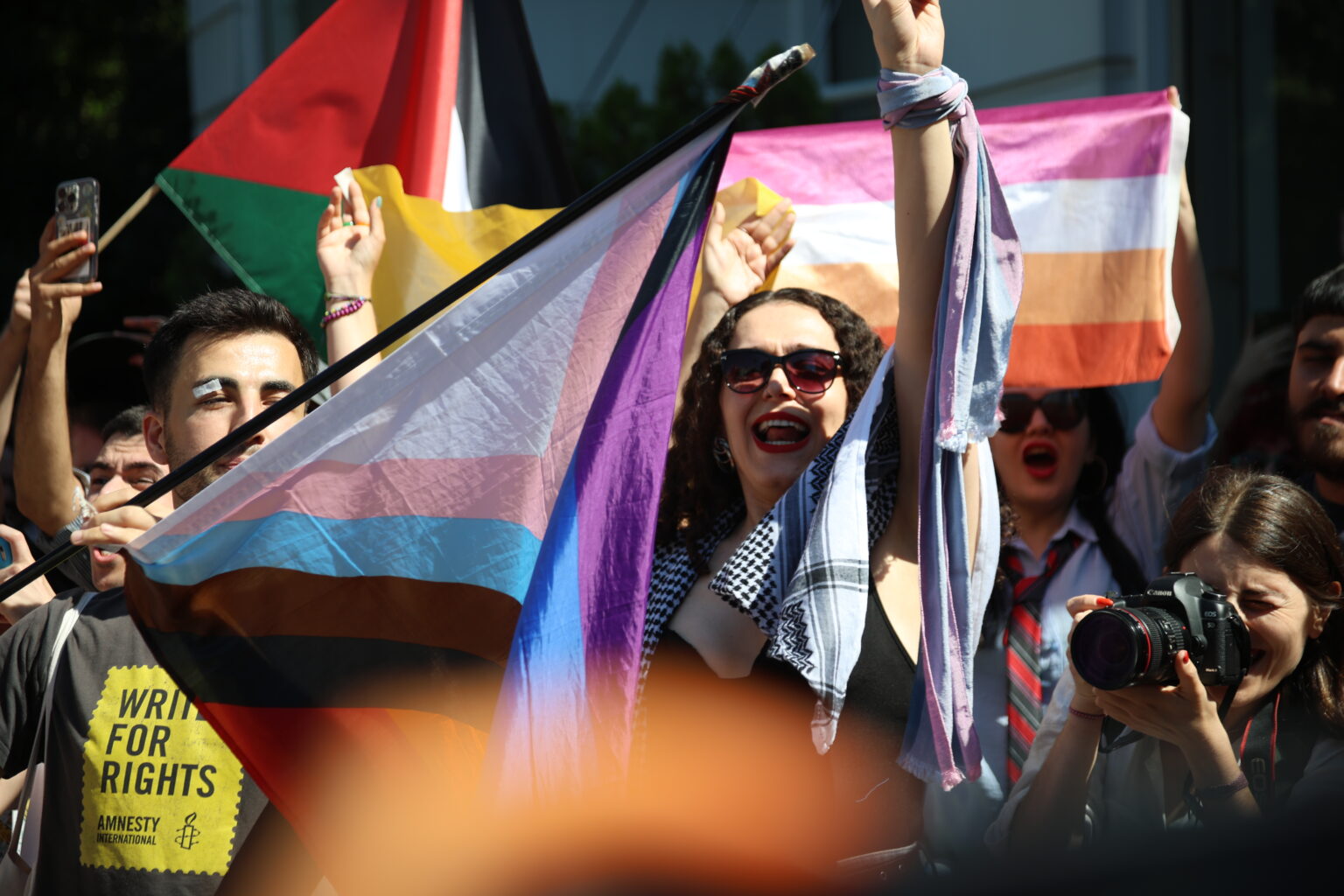
Amid increased repression from the government, the Turkish LGBTI+ community courageously and creatively resists bans on Pride events again this year
This year’s Pride season in Turkey saw continued bans on LGBTI+ themed events, as well as police repression, as the government continues to disregard the fundamental right to freedom of assembly and expression for LGBTI+ people. LGBTI+ activists across the country stepped up their tactics to avoid police repression, bans and arrests as much as possible.
METU, 31 May
On the METU student campus, Pride took place without intervention, as organisers moved the start time from 18:00 to noon.
Eskişehir, 9 June
Ten LGBTI+ activists were detained and subjected to torture. For the first time since 2015, four of the detained activists were referred to court with a demand for arrest. Later, all four of them were released.
Ankara, 12 June
The Ankara Pride committee, in response to police barricades and water cannons set up in many parts of the city, organised the march on another route. The police were therefore unable to intervene and no one was detained.
Trans Pride Istanbul, 23 June
The Istanbul governor’s office blocked metro stations in anticipation of Trans Pride, and hundreds of police officers were sent to the Beyoğlu, Şişli, and Beşiktaş districts, setting up checkpoints, barricades, and water cannons to blockade many roads. As a result, organisers decided not to hold a mass march; instead, they hung trans flags in different public locations. Two people were detained while sitting inside a café.
Izmir, 29 June
In İzmir the Pride march was held in Bornova one day before the official march was called to go ahead. This change in timing prevented any interventions.
Istanbul, 30 June
During Pride week in Istanbul, two events, one in Şişli and one in Kadıköy, were banned by district governors. The Istanbul Governorship issued a ban on Taksim and Istiklal Street in the early hours of the day of the Istanbul Pride march and described the Istanbul LGBTI+ Pride Week Committee as “various illegal groups”. The police were waiting at Taksim, Beyoğlu but the activists held the march instead at Bağdat Street of Kadıköy (on the Anatolian side) which was the first Istanbul Pride march on the Anatolian side of the city. Activists made a press statement and marched for approximately ten minutes before the police caught up and dispersed the crowd. Eleven people were arrested after the march ended, three of which were minors, who were handcuffed behind their backs in violation of the Child Protection Law. All were released after approximately eight hours.
Antalya, 1-15 July
All protests and events were banned by the governorship for 15 days, from 1-15 July, when Pride events were due to take place. The Pride march went ahead on July 14 and it was attacked by police, who arrested four participants.
Resilience and Creativity of Pride Organisers
It is clear that following the national elections of May 2023, and the municipal elections of March 2024, both marred by significant anti-LGBTI+ rhetoric, smear campaigns, and misinformation, institutionalisation of anti-LGBTI+ actions is on the rise. The international community must not be fooled by the reduction in arrests and violence during this year’s Pride season – much of this was avoided by the creativity and resilience of Pride organisers. Meanwhile hatred against LGBTI+ people from government and institutions is still coordinated and becoming more entrenched in policy.
Alarming developments in 2024
While Turkey continues to disregard its obligations under its own constitution and international treaties to which it is party to ensure the right of freedom of assembly and expression for all, it is also stepping up institutional targeting of the LGBTI+ community. Anti-LGBTI+ rhetoric by key political figures continues, related to more institutional contexts.
In June, the Minister of Family and Social Services Mahinur Göktaş presented the new 2024-2028 Action Plan for the Protection and Strengthening of the Family. This Action Plan contains measures to combat “deviant harmful ideology” of LGBTI+ people. The Minister stated that “Family structure is being destroyed by impositions carried out on a global scale” and President Erdogan added that “the imposition of LGBT has become a tool of tyranny, oppression and the corruption of society that even surpasses fascism”.
Misinformation is being institutionally supported, as one of the actions of the plan is that “documentary/program studies will be carried out on the negative effects of harmful trends and habits that threaten families on human nature and rights, family structure and society, especially on children, and existing broadcasts will be translated into Turkish.”
As has been seen with the government’s support to the Big Family Platform, LGBTI+ people are wrongfully framed as a “threat to the family”. The Speaker of the Grand National Assembly of Turkey, Numan Kurtulmuş, during his meeting with the Big Family Platform, an organisation organising anti-LGBTI+ hate rallies and calling for the closure of LGBTI+ organisations, targeted LGBTI+ individuals by referring to them as “deviant movements.”
The Ministry of Foreign Affairs is tasked under the Action Plan with creating connections with actors with similar agendas abroad, which implies further institutionalisation of the anti-gender movement.
The Presidency of Religious Affairs has also released its 2024-2028 Action Plan, which pledges over two million lira to fight against the LGBTI+ movement. The plan’s states that “homosexuality and its derivatives” are deviant and socio-cultural threats at the individual, family and societal level. Included in the actions, the General Directorate of Religious Publications is expected to prepare 40 publications similar to the “Family Magazine” until the end of 2028 “to protect the family against deviant ideologies that threaten the family”. “Family Magazine” is published by the Directorate General of Religious Publications and targets LGBTI+ people.
As we raise these alarming developments, we continue to call on international institutions to raise these issues in all relevant meetings with Turkish authorities, and for donors to further support Turkish LGBTI+ civil society in the face of the increased state-led repression.
The fight against Georgia’s foreign agent law and anti-LGBTI legislation
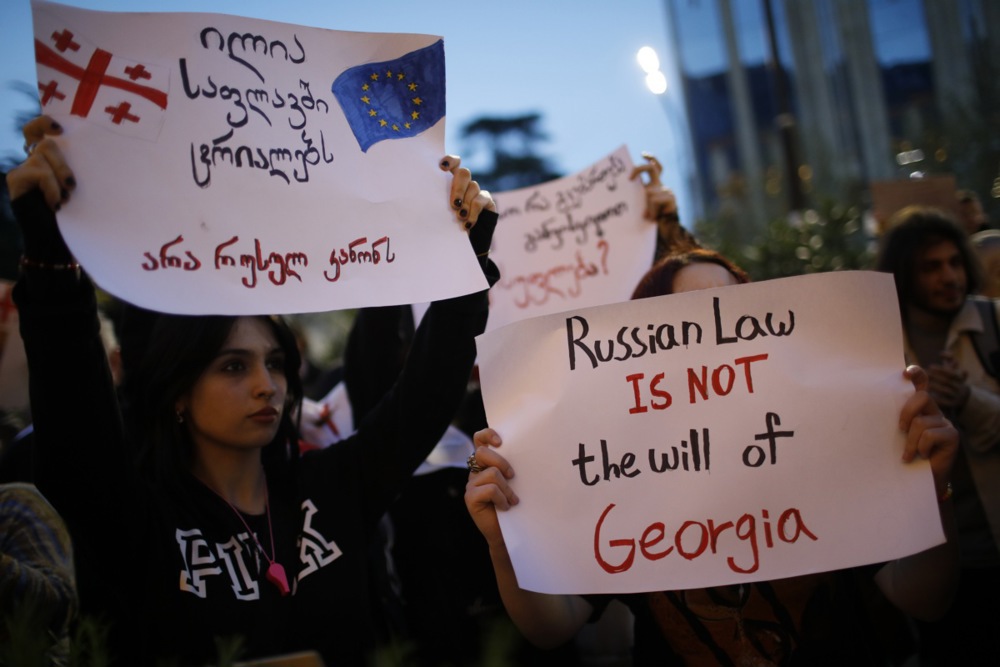
In the face of rising authoritarianism, Georgia’s civil society and LGBTI community are battling draconian laws inspired by Russia, threatening their democratic rights and freedoms ahead of a pivotal national election
On 14 May 2024, the Georgian parliament passed a Foreign Agent law that would see civil society and independent media that receive more than 20% of their funding from abroad forced to register as organisations “bearing the interests of a foreign power” and to open all their internal documents for inspection by the authorities. The bill is part of a wider crackdown on democracy by the ruling Georgian Dream party, which has been inspired by the almost identical foreign agent law enacted in the Russian Federation in 2012.
Opposition to this bill has been significant among Georgian society, which supports democracy, EU accession and a thriving civic space, and is opposed to Russian-style anti-democratic laws. There were huge protests all over Georgia, in which tens of thousands demonstrated in the streets against the adoption of this law. Georgian civil society organisations, including LGBTI organisations, are fearful that more legislation will be adopted which will target civil society and democratic checks and balances.
Targeting the LGBTI community
One such legislation package, announced on 4 June 2024, specifically targets the LGBTI community. If adopted, it would:
- Ban any kind of medical intervention to change sex, such as hormone therapy
- Ban any LGBTQI content in education, in media, in the arts
- Ban legal gender recognition
- Ban adoption for same-sex couples
- Limit freedom of assembly for events that cause “popularisation of same sex marriages or incest”
- Make biological sex markers mandatory
These proposed legislative changes also borrow from Russia’s playbook by singling out the LGBTI community as a target and scapegoat. This legislation is being fast tracked for adoption before the national elections taking place on 26 October, with a first reading and favourable vote having taken place in June and the final two readings scheduled for September.
The combination of both the foreign agent law and the anti-LGBTI legislation would render the functioning of LGBTI civil society organisations and activists in Georgia almost entirely impossible. Already in May, the Council of Europe’s Commissioner for Human Rights commented on how the foreign agent law would specifically target LGBTI civil society. On 21 May, the Venice Commission published an Urgent Opinion on the foreign agent law, concluding that the law’s restrictions on the rights to freedom of expression, freedom of association and privacy are incompatible with international and European standards regarding democracy and non-discrimination.
Mobilising international support
ILGA-Europe conducted advocacy ahead of the June session of the Parliamentary Assembly of the Council of Europe (PACE), to draw attention to the anti-LGBTI law also during the urgent debate on Georgia. We requested parliamentarians to raise the issue of LGBTI people being impacted by both the foreign agent law and the anti-LGBTI law, which a number did. In particular, parliamentarian Beatrice Fresko-Rolfo spoke entirely on this, highlighting how the anti-LGBTI legislation restricts the fundamental rights of LGBTI people including freedom of expression and freedom of assembly, and reflecting on what will happen to the LGBTI community of Georgia if these legislative changes are adopted.
Following the debate, PACE resolution “Challenges to democracy in Georgia” was adopted by the Assembly, addressing the foreign agent law, the violent attacks and intimidation campaigns, the electoral law changes, and the anti-LGBTI law. The Assembly also will address the foreign agent law in a separate upcoming resolution.
Sharp rise in violence
This has all been taking place while the Georgian government and its allies allow for violent attacks and intimidation campaigns against demonstrators, civil society activists, journalists, and opposition MPs. The offices of LGBTI organisations Tbilisi Pride and WISG have been vandalised, and the private homes of their staff have also been targeted by vandalism and intimidatory posters. LGBTI human rights defenders and their families are receiving threats of violence, including death threats. 20 other civil society organisations and opposition party offices have also been vandalised. As this violence and intimidation is condoned by the government, incidents of physical violence are also increasing. Activists expect a hate campaign to be led by the government in the lead up to the national elections taking place on 26 October 2024, and therefore for the hatred and violence to rise even more in September.
The electoral context
The foreign agent law will make it difficult for international organisations to observe the elections for any irregularities in October, adding to the fear that the elections will not be free and fair. This comes after the 20 February 2024 adoption of amendments to Georgia’s Electoral Code, which made it possible for the ruling majority, by itself, to select and appoint the chairperson and non-partisan members of the Central Election Commission (CEC), and which altered the legally required majorities for decision making by the CEC. These changes combined make it possible for the government to control all decisions of the CEC.
If the current ruling party wins the elections, they have made it clear that they will concretise the anti-LGBTI legislation into Georgia’s constitution through constitutional amendments. They also plan to hold a referendum on Georgia’s EU accession. We should expect more anti-democratic and anti-human rights legislation and policies and a broader turn towards Russia and away from the EU.
What can be done?
Georgian civil society will be casting their votes on 26 October for a democratic, pro-EU opposition. They rely on a change in government to halt Georgia’s current anti-democratic path and to repeal these laws that seek to stifle civil society and democratic opposition, and target the fundamental rights of LGBTI people. If the opposition wins in October, it is paramount that they do indeed repeal the foreign agent law and the anti-LGBTI amendments, and set Georgia back on a path to democracy and EU accession. This is especially important given the strength of the anti-gender and anti-rights movement currently pushing various countries in the region towards more autocratic governance, which needs to be strongly opposed by democratic parties. We call on all international actors to support us in ensuring that these laws are repealed if the Georgian opposition wins.
If, however, the current ruling party, Georgian Dream, wins the election, LGBTI civil society and Georgian civil society at large will need intensified support from international donors who should work hand-in-hand with Georgian civil society organisations to see how they can best be supported. In addition, it is widely concluded that the only effective way to hold Georgian MPs accountable for voting against human rights and democracy is through targeted sanctions affecting these individuals, rather than sanctions that would impact the broader economy and people of Georgia.
Joint civil society reaction to the adoption of the EU Directive on combating violence against women and domestic violence
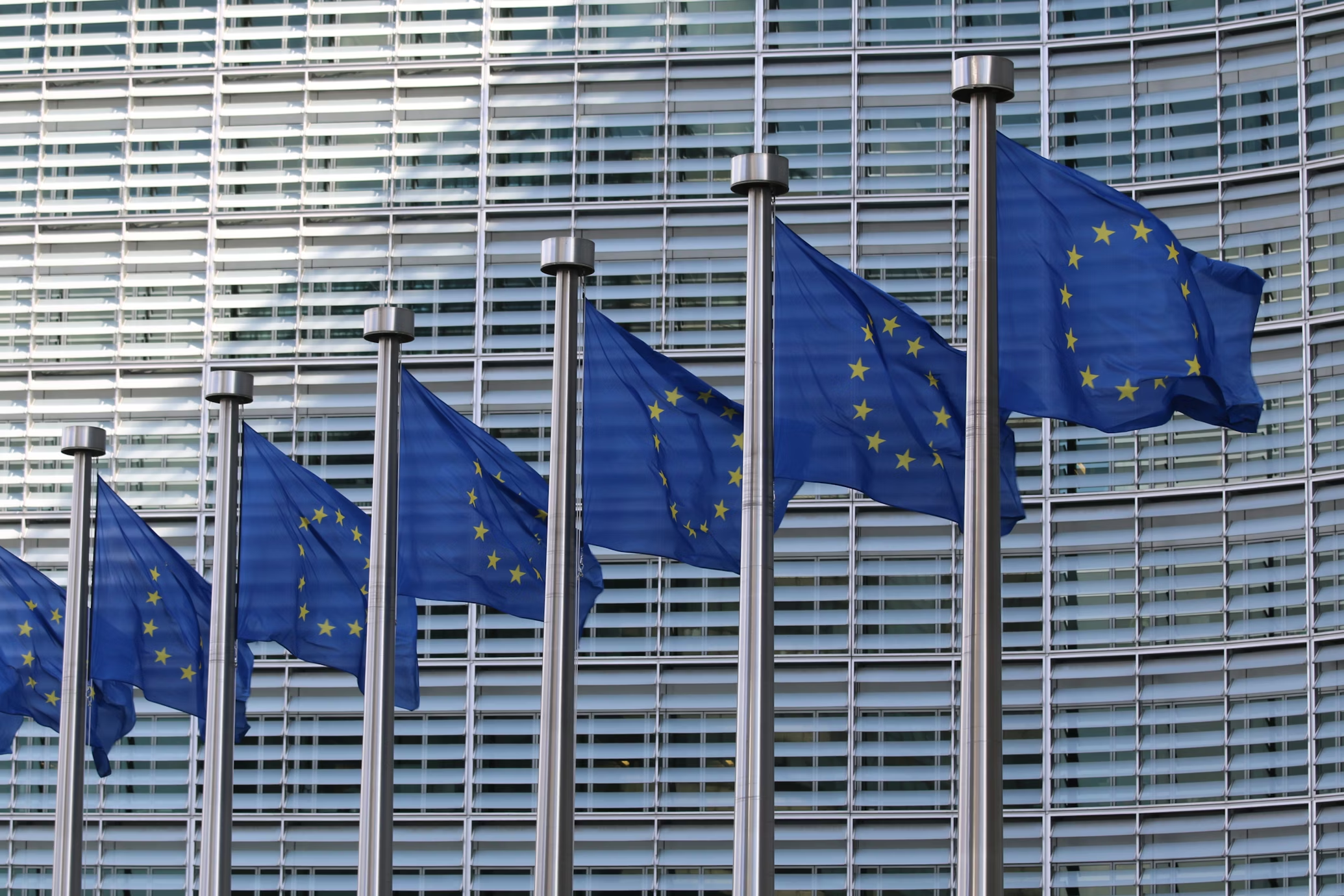
Today, the Council of the EU officially adopted the EU Directive on combating violence against women and domestic violence
As 13 civil society organisations1 which advocate for human rights, gender equality, and the right for all to live free from violence, we welcome this first ever binding EU legislation on this issue as a groundbreaking step.
The Directive adopts a holistic approach to combat violence against women2 and domestic violence, incorporating measures relating to prevention, protection, support for victims, access to justice and prosecution of perpetrators. This achievement is the result of long-term advocacy by feminist movements and Members of the European Parliament championing the European Commission’s ambitious proposal. We extend our gratitude to everyone involved in making this Directive as strong as possible.
We applaud the fact that the Directive recognizes the perpetration of female genital mutilation, forced marriage and certain forms of online violence as crimes. Unfortunately, other forms of violence were ultimately not criminalised, including intersex genital mutilation and forced sterilisation. We deeply regret that some Member States managed to derail the unprecedented opportunity to criminalise rape with a consent-based definition at the EU level. Sexual violence against women is endemic across the EU, with widespread impunity. Consent-based definitions of rape allow for all cases of rape to be included and strengthen protection and access to justice for victims of rape. We continue to call on all Member States who have not yet done so, to move towards adopting consent-based laws.
Crucially, the Directive will require Member States to do more to prevent rape, by raising public awareness of the fact that sex without consent is a crime, through awareness raising programmes and educational materials. We encourage Member States to embrace the comprehensive prevention approach outlined in the Directive, in particular primary prevention initiatives, and to provide mandatory comprehensive sexuality education, which includes consent education and challenges harmful gender norms.
The Directive further guarantees comprehensive support to victims of violence against women and girls and domestic violence and access to both general and specialist support services, shelters, support for child victims, as well as access to comprehensive medical care including sexual and reproductive health services. This is the first time that EU law imposes explicit obligations on Member States to provide access to this essential medical care for victims of sexual violence. Member States will also have to provide training for professionals likely to come into contact with victims, on how to provide this support.
The Directive recognises that victims of violence against women and domestic violence who experience intersectional discrimination are at a heightened risk of violence, and obliges Member States to meet their specific needs. Targeting a public figure, a human rights defender, or someone for their personal characteristics will constitute an aggravating circumstance. In the implementation of the Directive, Member States must ensure that all victims and survivors of gender-based violence are protected, no matter their sexual orientation, gender identity, gender expression or sex characteristics.
However, EU lawmakers yet again silenced women impacted by EU migration policies. The only concrete step forward for migrant women is that the text requires Member States to make shelters available to all women experiencing domestic abuse, regardless of their residence status. Nonetheless we condemn that the final text does not retain provisions on protecting undocumented women’s personal data from being transmitted to immigration authorities (neither in the context of accessing shelters, nor in terms of accessing justice). Member States must ensure that women are not deterred from going to the police because of their residence status, by including access to safe reporting in the ongoing revision of the Victims’ Rights Directive.
We call on the European Commission to provide guidelines and training to Member States, based on international standards and in consultation with civil society organisations. We urge Member States to fully implement the Directive as soon as possible. Recalling that the Directive sets minimum standards, we call on Member States to go beyond these and to realise the highest standards across the EU.
We call on the European Commission to review the Directive in the next five years and to work towards comprehensive and inclusive measures to address all forms of sexual and gender-based violence without discrimination.
We, together with our members across Europe, are committed to providing our expertise, and look forward to supporting a strong implementation of the Directive, to progress towards a Europe where everyone is safe from gender-based violence.
- Amnesty International, Center for Reproductive Rights, EuroCentralAsian Lesbian* Community (EL*C), End FGM European Network, European Sex Workers’ Rights Alliance (ESWA), Human Rights Watch, ILGA-Europe (The European region of the International Lesbian, Gay, Bisexual, Trans and Intersex Association), International Planned Parenthood Federation European Network (IPPF EN), La Strada International, Organisation Intersex International Europe (OII Europe), Platform for International Cooperation on Undocumented Migrants (PICUM), TGEU (Trans Europe and Central Asia), Women Against Violence Europe (WAVE).
Our organisations work on a diverse range of women’s rights issues. In the drafting of this document, we have been led by the expertise of women’s rights organisations and women human rights defenders from communities most impacted by the specific forms of violence described in each section. Our commitment to the text below represents our coming together as a collective with shared values, even though not every organisation has its own policy or programme of work dedicated to each issue. ↩︎ - Throughout this statement, the term “women” should be understood as including “women and girls”, as in the definition of “violence against women” proposed by the European Commission in the Directive, which encompasses “violence directed against a woman or a girl”. ↩︎
Statement in solidarity with the LGBTI movement in Kazakhstan

ILGA-Europe stands with Kazakhstan’s LGBTI Community amid Russia-style attempts to criminalise LGBTI people and their human rights
ILGA-Europe express solidarity with the LGBTI community in Kazakhstan as they face legislative proposals which will worsen the already exacerbated situation of the LGBTI community in the country. Two concerning anti-LGBTI legislative initiatives that were voiced last week by two separate groups of members of Kazakhstan’s Parliament threaten the fundamental rights and freedoms of LGBTI individuals in Kazakhstan.
The initiative by the Parliament members Aimagambetov and Ashimzhanov (both from Amanat Party) attempt to introduce a legal prohibition for mass media to write about “non-traditional sexual orientation”. In the same week, Parliament members Zhanbyrshin and Musabaev (also from Amanat party) introduced a draft amendment to include so-called “propaganda of non-traditional sexual relations” in the “discord incitement” provision 174 of the Criminal Code and to prohibit peaceful assemblies on the same ground.
Such initiatives aim to divert attention from pressing issues like natural disasters that the entire northern and western Kazakhstan has been suffering for the past few weeks, with so many villages and towns affected, and over 100,000 people relocated, as well as the nation’s worsening socioeconomic situation and rising public call for the elimination of domestic violence. We call on the Kazakhstan Government to not arbitrarily target the LGBTI community and violating the principles of non-discrimination enshrined in the Constitution of Kazakhstan.
In the past couple of weeks, according to some media reports and from information spreading in messenger chats, the Law Enforcement of Astana have been illegally raiding nightclubs, specifically targeting LGBTI people. This is demonstrative of how such anti-LGBTI discourse and initiatives directly reflect on the safety of LGBTI people.
Kazakhstan’s current legislation does not protect LGBTI people from bias-motivated crimes, places discriminatory and humiliating barriers for legal gender recognition, bans same sex marriage and adoption by LGBTI persons, among many other pressing issues. The existing provisions restricting human rights of LGBTI people and any further attempts to do so contradict Kazakhstan’s international legal commitments, including the implementation of Recommendation No. 139.48 within the Kazakhstan’s previous reporting under Universal Periodic Review cycle, which calls for creating an enabling environment for LGBTI activist groups and human rights defenders.
We are also deeply concerned about the implications of amending Article 14 of the Law on Peaceful Assemblies, which would restrict the right to peaceful assembly for the LGBTI community and other civil society actors. This move further marginalises an already vulnerable community and threatens the democratic principles Kazakhstan aspires to uphold.
ILGA-Europe denounces any attempts to introduce discriminatory legislation that targets the LGBTI community. The LGBTI community in Kazakhstan deserves legal protection and recognition without discrimination.
We urge the Parliament to refrain from any future attempts of adopting anti-LGBTI legislation, and start to engage in meaningful dialogue with civil society and expert organisations to ensure the protection of LGBTI rights. We call on Kazakhstan to uphold its constitutional duty to protect the rights of all citizens, including on the grounds of sexual orientation or gender identity.
We call upon the International Partners of Kazakhstan to join us in reinforcing the dialogue on asking the Government of Kazakhstan to work towards improving the situation with human rights of LGBTI people.
ILGA-Europe stand in solidarity with the LGBTI community in Kazakhstan and reaffirm our commitment to supporting their struggle for equality, dignity, and respect. We encourage individuals and organisations to join us in speaking out against discrimination and advocating for the rights of all LGBTI individuals in Kazakhstan.
BACKGROUND
On February 11, the Ministry of Information of Kazakhstan blocked the selftanu.kz website which aimed at raising awareness of LGBTI teenagers about their rights and providing them with information on healthcare and reproductive rights, among others. The Ministry justified its decision that the information on the website violates the norm of the legislation on preventing dissemination of information that would cause harm to the health and development of children.
On February 23, Kazakhstan’s President Tokaev signed the law preventing LGBTI people from mentoring orphans. When asked how the authorities would identify LGBTI identity of prospective mentors, the Vice-Minister of Education of Kazakhstan Natalia Zhumadildaeva stated that LGBTI people would be prevented from adopting and mentoring orphans according to these provisions. She claimed that the Ministry had developed a special psychological test for such purposes. Again these are non-scientific and inhumane approaches that contradict common sense and go against Kazakhstan’s national and international commitments to uphold human rights and non-discrimination.
On March 5 the authorities of the Almaty Mayor’s office responded to questions why it had prohibited the women’s inclusive rally dedicated to International Women’s Day marked on March 8. Almaty authorities recalled that over the past few years, representatives of feminist movements have already held authorised rallies on March 8. But officials were unhappy that during the protests the organisers and participants “repeatedly deviated from the stated topic.” They claimed that there had been numerous requests from different citizens not to allow the women’s rally, because reportedly “In appeals to them and in messages on social networks, the organisers of the rally, under the guise of the fight for women’s rights, actually promoted non-traditional values that were alien to Kazakh society such as same-sex relationships, marriages, LGBT symbols and others. And, in order to ensure the safety of participants in peaceful assemblies, in order to avoid violation of the rights of city residents and other persons, and to prevent violation of public safety by the Almaty authorities, a decision was made not to approve the rally of feminist organisations”.
On April 5, within the discussions of amendments to the Law on Mass Media, the first initiative was put forward by Parliament Members Askhat Aimagambetov and Zhanarbek Ashimzhanov (both from Amanat Party) to include provisions that would ban Mass Media from mentioning anything about LGBTI. This was followed by another more restrictive initiative on April 10 by Parliament Members Edil Zhambyrshin and Samat Musabaev (also from Amanat Party). In particular, they proposed an amendment to Article 174 of the Criminal Code (“Inciting social, national, tribal, racial, class or religious hatred”) to include criminal charges for those who break the law and publicly mention about LGBTI. Although, both provisions did not make it to the second reading of the bill and when it was passed to the upper Chamber of the Parliament. However, LGBTI activists fear these amendments may resurface as the initiators made it clear they would not withdraw their attempts to follow through.
For the past couple of weeks, according to media reports and information shared on messenger chats, law enforcement in Astana has been illegally raiding night clubs and specifically targeting LGBTI people under the false pretence of preventing illegal proliferation of drugs. Reportedly the police are also raiding private parties organised in apartments and houses, as well as nightclubs that are not specifically LGBTI-themed.
Open letter of the European Coalition on Sex Workers’ Rights and Inclusion to Members of the European Parliament Re: Prostitution Report
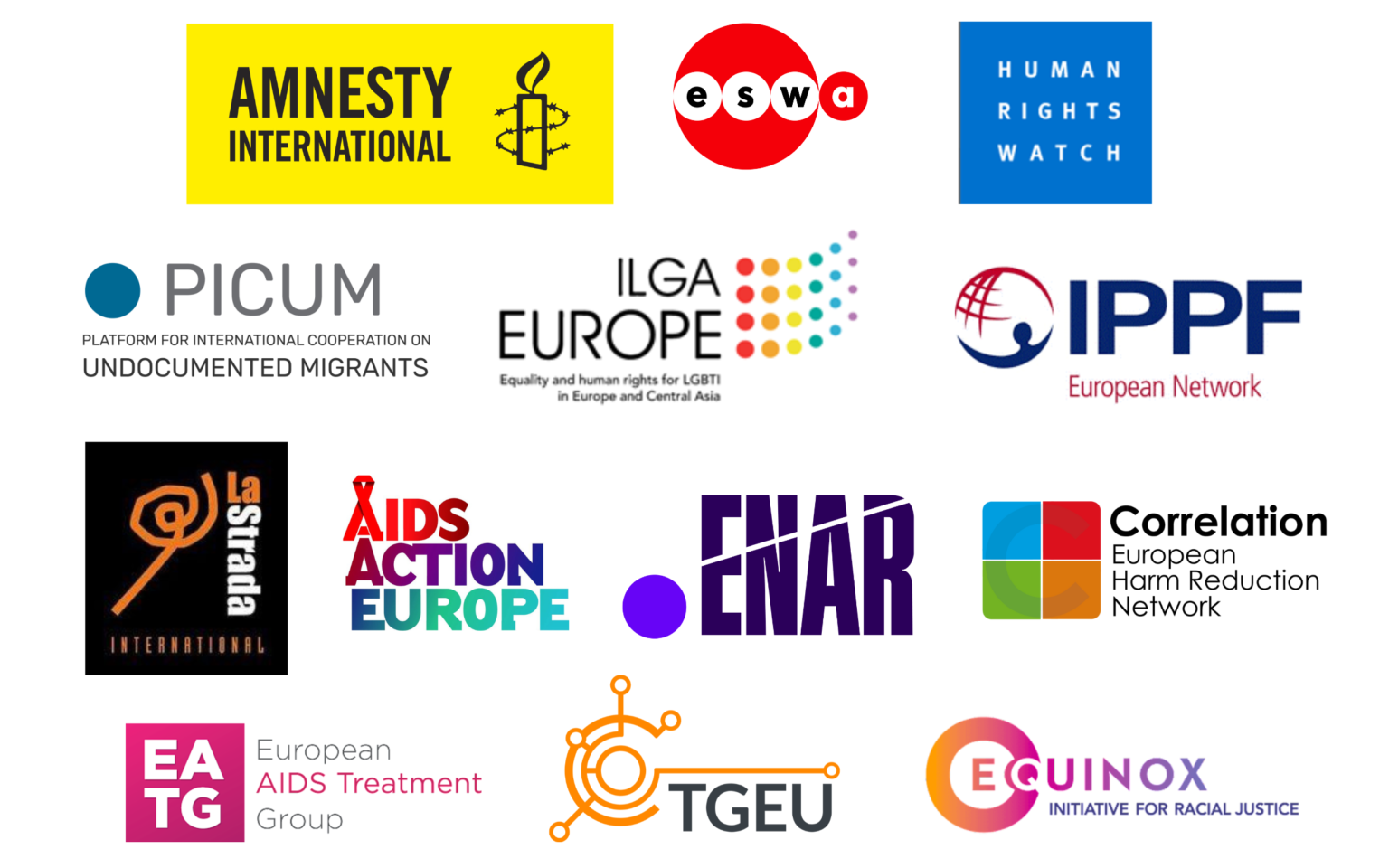
We call on the members of the European Parliament to reject the “Prostitution Report”. The criminalisation of any aspect of sex work further compromises vulnerable groups, increases risks of violence, and will not combat human trafficking and forced labor. This proposal isn’t the solution, we need to protect women and all sex workers. Read our joint open letter.
We, the organisations united under the European Coalition on Sex Workers’ Rights and Inclusion, call on all Members of the European Parliament to reject and to vote against the report Regulation of prostitution in the EU: its cross-border implications and impact on gender equality and women’s rights, 2022/2139(INI).
Our organisations are leading civil society networks and human rights organisations. We have decades of experience and expertise in addressing women’s rights and gender equality, human rights, sexual and reproductive health and rights, HIV, harm reduction, the rights of LGBTI people, digital rights, human trafficking, migration, racial justice and criminal justice. Within these numerous fields of expertise, all 13 organisations have come to the same conclusion: criminalisation of any aspect of sex work, which is proposed by this report, does not protect the rights of women and others engaged in sex work for manifold reasons, and does not help address the very serious issue of human trafficking and forced labour. It is only by adopting a human rights-based approach, decriminalising all aspects of sex work, and meaningfully including sex workers and sex workers’ human rights defenders in decision-making, that people selling sex, including victims of sexual exploitation, can be protected and serious human rights violations against people selling sex experience can be addressed.
We consider the submitted report, which will be put to a vote in plenary on September 14, to be biased and harmful for people selling sex and other vulnerable groups for the following reasons:
- The report calls to punish sex workers’ clients (Para 9, 22, 38) and make it a criminal offence across the EU to solicit, accept or obtain a sexual act from a person in exchange for remuneration, the promise of remuneration, the provision of a benefit in kind or the promise of such a benefit (so-called Nordic model).
- While proposing the adoption of this model of criminalising the client (introduced, for example in Sweden, France, and the Republic of Ireland), the report ignores the body of evidence[1] on its negative impacts on human rights of people selling sex. Sex workers report increased precarity and vulnerabilities to violence and infectious diseases (including HIV) and reduced trust in authorities. Sex workers face increased stigma, barriers to accessing services and justice, and increased risks of homelessness in countries where such criminalisation is in force.
- This report ignores the fact that a similar provision is currently under review by the European Court of Human Rights for alleged violations of Articles 2, 3 and 8 of the European Convention on Human Rights in the case of M.A. and 261 others vs France[2]. On August 31 2023, without ruling on the merits at this stage, the Court declared the application admissible after acknowledging that the applicants were entitled to claim to be victims, within the meaning of Article 34 of the European Convention on Human Rights of the alleged violation of their rights under Articles 2, 3 and 8[3] and dismissed the Governments’ preliminary objections. The Court, in its decision acknowledges that “the applicants produce evidence tending to show that the clandestinity and isolation induced by this criminalisation increase the risks to which they are exposed” (Para 38).
- The report also denounces the effects of the legalised model (introduced in Germany, the Netherlands, Austria), but fails to consider the latest legal and policy developments such as the full decriminalisation of sex work in Belgium in 2022, which was adopted based on evidence, and recommendations of human rights organisations, UN agencies and meaningful consultation with sex workers, to better protect sex workers’ human rights and more effectively combat human trafficking.
- The report further misinterprets the findings of multiple health studies. The studies referenced[4] in Recital K directly contradict the call to punish clients and criminalise the purchase of sex. These calls are also opposed by numerous UN agencies, such as the Joint United Nations Programme on HIV/AIDS (UNAIDS)[5], the World Health Organization, the UN Population Fund (UNFPA), and the UN Development Program (UNDP).
- The report misinterprets the definition of trafficking in human beings as set out in Article 2 of Directive 2011/36/EU. According to the report, the “consent of a victim of trafficking in human beings to the exploitation, whether intended or actual, shall be irrelevant where it is obtained through the giving or receiving of payments or benefits“. The quote, however, omits the second part of the sentence. The full text reads that the consent of the victim of trafficking is irrelevant “where it is obtained through the giving or receiving of payments or benefits to achieve the consent of a person having control over another person. In other words, for trafficking there must always be a third party involved who exercises one of the coercive or deceptive means for the purpose of exploiting that person. The exchange of sexual services (or any other service) between consenting adults is not trafficking. It becomes trafficking when, simply said, person A gives or receives payments or benefits to obtain the consent of person B who has control over victim C with the aim of exploiting victim C.
- The report makes further claims related to human trafficking which are not based on evidence. For example, it claims that trafficking for sexual exploitation is increasing when the latest available data[6] published by the European Commission actually show a slight decrease in the number of identified victims of trafficking for sexual exploitation in the EU. It also claims that countries which have criminalised the purchase of sex (such as Sweden, Ireland, and France) are “no longer big markets” for trafficking for sexual exploitation, when this is not the case – the Eurostat data[7], again, does not support such a conclusion.
- The report further denies a particular group of women (women who sell sex) their right to bodily autonomy (Paragraph 11, Recital C) by rendering void consent to sexual acts which involve payment or receipt of benefits. Criminalising the purchase of sex denies an entire group of people (most of whom are women) the right to make decisions about their lives. Similarly, the March 8 Principles by International Commission of Jurists (ICJ, 2023)[8] unequivocally opposed such criminalisation due to its detrimental effects on the human rights of people selling sex. This can lead to dangerous assumption that women who sell sex, in fact, cannot be raped.
- The report further calls for the introduction of criminal sanctions against anyone who profits from prostitution (Recital AK). This proposal fails to distinguish between conduct that is exploitative, abusive, or coercive, and activity that is personal, practical, and supportive or for the purposes of safety of people selling sex. This practice leads to the criminalisation of sex workers sharing premises for safety. It is also routinely used to evict people selling sex from their homes and apartments as landlords can be criminalised for ‘profiting from prostitution’. For some EU MS, like Portugal, the proposed definition has been recognized as unconstitutional[9].
In June, the prestigious health journal The Lancet[10] called on you to vote against this report as it is based on false or misleading information and would be harmful to the people it claims it wants to protect. Likewise, we, as feminists and women’s rights advocates, human rights defenders, service providers, researchers, and NGOs with decades-long experience, urge you to vote against the report “Regulation of prostitution in the EU: its cross-border implications and impact on gender equality and women’s rights, 2022/2139(INI).
Brussels, September 5, 2023
Signed by
- Amnesty International
- Equinox Initiative for Racial Justice
- European AIDS Treatment Group
- La Strada International
- ENAR
- The European region of the International Lesbian, Gay, Bisexual, Trans and Intersex Association (ILGA-Europe)
- Transgender Europe (TGEU)
- Human Rights Watch
- International Planned Parenthood Federation – European Network (IPPF EN)
- PICUM
- Correlation-European Harm Reduction Network (C-EHRN)
- ESWA
- AIDS Action Europe
[1] Ireland: “We live within a violent system.” Structural violence against sex workers in Ireland – Amnesty International (2022), W922-0152-WPS-Policy-Paper-6-singles.pdf (lse.ac.uk) (2022), What do sex workers think about the French Prostitution Act? (hal.science) (2019), Assessment of impact criminalisation of purchasing sexual services | Department of Justice (justice-ni.gov.uk) (2019), https://www.icj.org/icj-publishes-a-new-set-of-legal-principles-to-address-the-harmful-human-rights-impact-of-unjustified-criminalization-of-individuals-and-entire-communities/ (2023)
[2] See the preamble of the report: having regard to the ongoing communicated case 63664/19, 64450/19, 24387/20 et al. of the European Court of Human Rights of 12 April 2021, see also the case file: M. A. ET AUTRES c. FRANCE et 4 autres affaires (coe.int)
[3] See also the Court’s decision on admissibility M. A. AND OTHERS v. FRANCE (coe.int)
[4] Platt, L. et al., ‘Associations between sex work laws and sex workers’ health: a systematic review and meta-analysis of quantitative and qualitative studies’, PLOS Medicine, Vol. 15, No 12, 2018.,
Wong, S., ‘Decriminalising sex work would cut HIV infections by a third’, Imperial College London, 24 July 2014.
[5] HIV and sex work — Human rights fact sheet series 2021 | UNAIDS
[6] Trafficking in human beings statistics – Statistics Explained (europa.eu)
[7] Statistics | Eurostat (europa.eu)
[8]https://www.icj.org/icj-publishes-a-new-set-of-legal-principles-to-address-the-harmful-human-rights-impact-of-unjustified-criminalization-of-individuals-and-entire-communities/
[9] Profit is not a criminal offence, judges have held that “a person’s decision to engage in prostitution may constitute a full expression of his or her sexual freedom”. And they argue that it is unconstitutional to punish with jail time those who profit from the prostitution of other persons practiced of their own volition. https://www.publico.pt/2023/05/09/sociedade/noticia/movimento-trabalhadores-sexo-elogia-decisao-tribunal-constitucional-2049084
[10] https://www.thelancet.com/journals/lancet/article/PIIS0140-6736(23)01179-0/fulltext
Trans and intersex rights at the forefront of positive change for LGBTI people in Europe, Rainbow Map finds
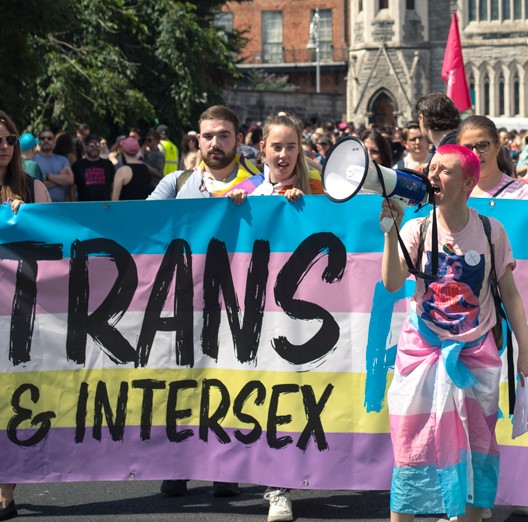
Despite intense anti-LGBTI attacks in several countries, equality is still advancing across Europe, ILGA-Europe’s annual Rainbow Map and Index shows.
The latest Rainbow Map and Index from Europe’s leading LGBTI organisation, ILGA-Europe, finds that while the public discourse is becoming more polarised and violent, particularly against trans people, political determination to advance LGBTI rights is paying off. The largest gains on the map are for countries that introduced legal gender recognition (LGR) using a self-determination model.
Published on Thursday, May 11, 2023 at the IDAHOT+ Forum in Iceland, ILGA-Europe’s annual Rainbow Europe Map and Index, ranking the legal and policy situation of LGBTI people in 49 European countries, finds that over the past 12 months bans on intersex genital mutilation (IGM) are also bringing countries up in the ranking. Spain jumped six places to number four with its introduction of LGR with self-determination, alongside a ban on IGM, while Finland entered the top ten, again up six places, again with LGR based on self-determination. Greece has also moved up four places with its ban on IGM.
Gender identity and sex characteristics are included in anti-discrimination and/or hate crime legislation, moving Belgium, Iceland and Moldova up the chart alongside Spain.
While the advancement of legislation recognising gender identity marks a major shift forward this year, there is more positive movement on the Rainbow Map and Index, notably:
- Moldova has jumped 14 places because sexual orientation and gender identity have been positively included in legislation covering employment, education, provision of goods and services, health, hate crime and hate speech.
- Slovenia and Switzerland switched positions. Both countries introduced same-sex marriage and joint adoption. Switzerland also allows medically assisted insemination for couples. Croatia too moved up one spot with its introduction of adoption for same-sex couples.
According to ILGA-Europe’s Executive Director, Evelyne Paradis: “As powerfully evidenced in this year’s Rainbow Map, the rise of anti-LGBTI rhetoric from anti-democratic forces, particularly instrumentalising false anti-trans narratives, is being fought back by politicians in Europe who have the courage to make a stand for the fundamental human rights and equality of every citizen. The map highlights the clear fact that progress for LGBTI people is still possible, and more important than ever, with the need for more leaders to push back on attacks on democracy for all by pushing forward. We commend those politicians who have taken the stance that needs to be taken for the good of everyone in our society, and we encourage more to step up to the plate as across Europe democracy and human rights are under threat from the far-right.”
Katrin Hugendubel, Advocacy Director at ILGA-Europe adds: “Governments, but also other political actors and institutions can and have been making a positive difference this year. A lot of progress relies on the Courts, for instance, at local, national and European level. Poland remains the country in the EU with the lowest ranking at 43rd place, but the country gained points in the index this year because of the courts ensuring that no surgical interventions are needed for legal gender recognition and the equality body extending its work to include intersex people. In a very hostile global climate, we are seeing different actors coming together, and weighing in more actively for LGBTI rights, which is crucial to counter the pushback.”
That pushback can also be seen in the challenge to freedom of assembly amid the rise of anti-democratic forces. Markedly, Serbia, which hosted a seriously compromised EuroPride march after last-minute attempts by the Serbian President and Minister of the Interior to ban the event, went down three places, while Turkey remains almost at the very bottom of the ranking after another year of crack-downs on Pride gatherings, showing that in 2023 the basic right to gather in a public space still cannot be taken for granted.
Released every May since 2009, marking International Day Against Homophobia, Transphobia, Biphobia, and Intersexphobia (IDAHOBIT), the ILGA-Europe Rainbow Map ranks all 49 European countries on a scale between 0% (gross violations of human rights, discrimination) and 100% (respect of human rights, full equality).
Executive summary 2023
Rainbow Europe – ILGA-Europe’s annual benchmarking tool – comprises the Rainbow Map and Index and national recommendations. ILGA-Europe have produced the Rainbow Map and Index since 2009, using it to illustrate the legal and policy situation of LGBTI people in Europe.
The Rainbow Map and Index ranks 49 European countries on their respective legal and policy practices for LGBTI people, from 0-100%.
In order to create our country ranking, ILGA-Europe examine the laws and policies in 49 countries using 74 criteria, divided between seven thematic categories: equality and non-discrimination; family; hate crime and hate speech; legal gender recognition; intersex bodily integrity; civil society space; and asylum. More information on the list of criteria and their weight on the total score can be found at www.rainbow-europe.org/about
Policymakers, researchers and journalists are able to go ‘behind’ the points and see the original information sources that we base our Map and Index ranking on. This additional layer of information is available through our updated Rainbow Europe web module, www.rainbow-europe.org.
The Rainbow Map and Index presents a picture of what the policy landscape is like currently, while our country-specific recommendations attempt to answer the question “what’s next?” These recommendations are intended to encourage policymakers to address the most pressing legal and policy priorities within the framework of our Rainbow Map and Index.
The recommendations were gathered following an online consultation with a wide range of LGBTI organisations in the various countries. As a result, the recommendations are tailored to the needs of activists working on the ground.
- For the eighth year in a row, Malta continues to occupy the number one spot on the Rainbow Europe Map, with a score of 89%.
- With 76 points, Belgium now occupies the second place with a rise of four points due to the inclusion of gender identity and sex characteristics as aggravating factors in the country’s penal code.
- Denmark comes third place with a score of 76 with the rise of two points due to its new equality action plan, which includes specific measures on sexual orientation and gender identity but falls short of inclusion of projects on sex characteristics.
- The three countries at the other end of the Rainbow Europe scale are Azerbaijan (2%), Turkey (4%), and Armenia (9%), exactly the same as the last three years. Among them, only Armenia increased an index point after revoking its ban on blood donations from men who have sex with men.
- Spain, Iceland, Finland, Moldova, Switzerland, and Croatia are the countries with the biggest jump in scores. Spain introduced a comprehensive law that regulates legal gender recognition (LGR) based on self-determination, banned genital mutilations on intersex minors, prohibited so-called “conversion” practices and outlawed discrimination based on sexual orientation, gender identity, and sex characteristics.
- Iceland adopted an equality action plan, included gender identity and sex characteristics in their equality law, and added sex characteristics protection in the penal code. Moldova also amended its equality law and penal code to include sexual orientation and gender identity.
- Finland adopted its Trans Law which regulates LGR based on self-determination.
- Switzerland’s legislation on marriage equality came into effect, which also gave the right to joint adoption and medically assisted insemination for same-sex couples. In Croatia, same-sex couples can now apply for joint adoption and second-parent adoption after a court decision.
For further comment, contact: Ana Muñoz Padrós, ILGA-Europe: ana@ilga-europe.org, +32 493 35 60 55
Combatting Hate Crime: How can LGBTI organisations work with authorities?
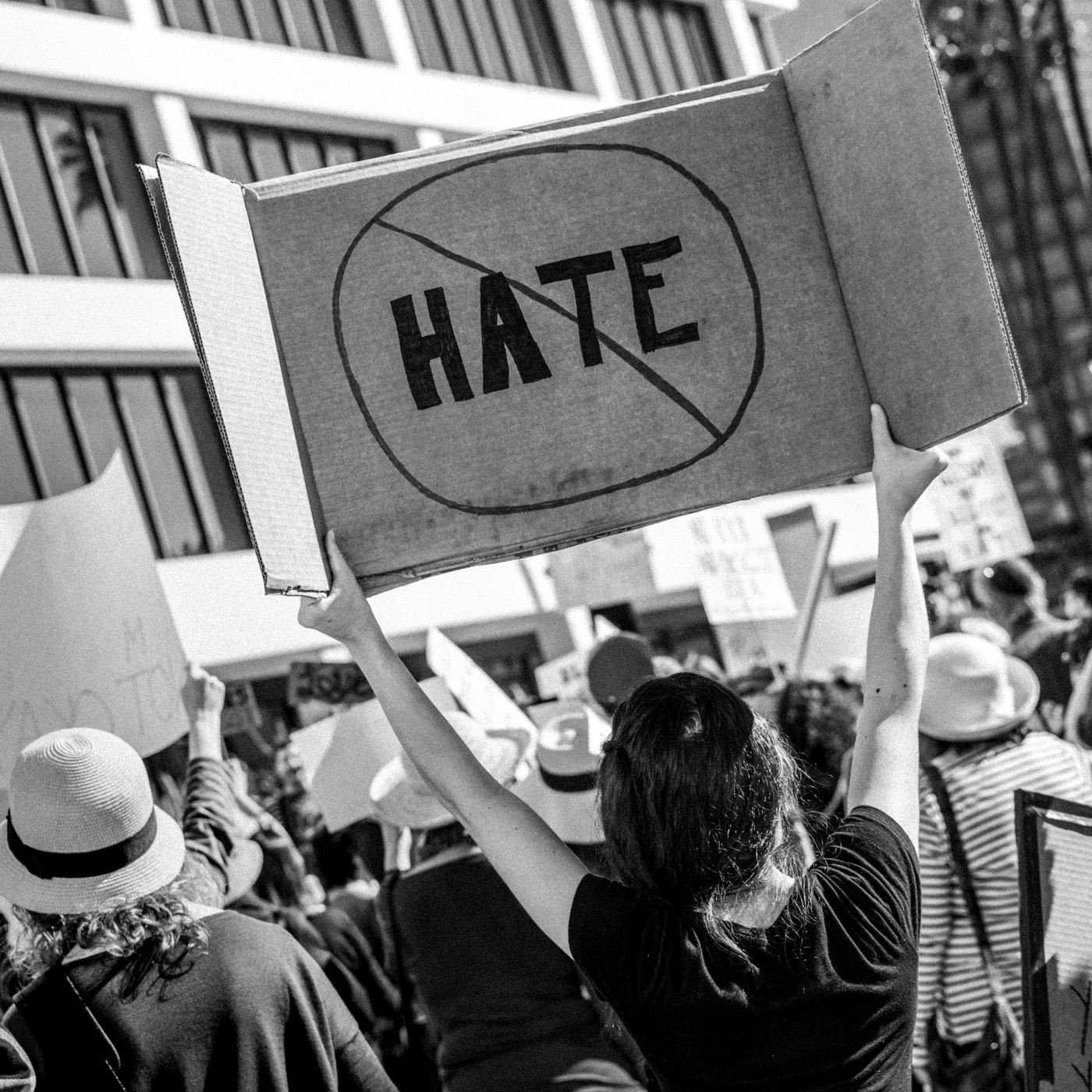
Tackling hate crimes against LGBTI people requires the cooperation of police authorities, but for different reasons this doesn’t always happen. In this blog, we share some ways in which LGBTI organisations can contribute to combating attacks against the LGBTI community, which are still on the rise across Europe.
In our latest Annual Review of the Human Rights Situation of LGBTI people in Europe and Central Asia, we’ve continued to see a rise in hate attacks against LGBTI people across the region. While this is not a new trend, it’s a concerning one that we’ve been monitoring for some time. Many survivors of these attacks do not report them to the police but instead turn to civil society, an in particular LGBTI organisations for help.
People in LGBTI organisations are trusted by their communities and survivors of hate crimes often feel more comfortable approaching them than the authorities. This is why many LGBTI organisations not only provide support but also collect data and monitor these attacks. However, organisations can only do so much, for this reason cooperation with law enforcement authorities is crucial.
The European Commission has developed a guide for national authorities on how to work collaboratively with civil society organisations in combating hate crime. Civil society organisations play a vital role in understanding the needs of victims, the local context, and the challenges faced by those at risk of hate crime. Partnerships with the police can lead to tailored responses to hate crimes, support operational police work, and help build trust and confidence in authorities.
Here are some actions that LGBTI organisations can take to contribute to police work in combating hate crime:
- Reach out to individuals and groups at risk of hate crime victimisation and raise awareness of their rights, including through schools and educational activities.
- Encourage reporting of hate crimes and empower victims and witnesses to come forward.
- Facilitate reporting on behalf of the victims.
- Participate in and contribute to effective referral arrangements for victims.
- Share methodologies of data collection and patterns of biases.
- Increase the capacities of police and law enforcement authorities through training sessions and practical guidance.
- Assist victims in reporting hate crimes and accessing specialist support, providing emotional support, practical help, information, and accompanying victims to report as their ‘person of trust’.
Cooperating with the police and national authorities is also a way for civil society organisations to hold them accountable for combating hate crimes and fulfilling their obligations to protect and promote the fundamental rights of LGBTI people.
Anti-LGBTI violence in Europe and Central Asia: The Numbers
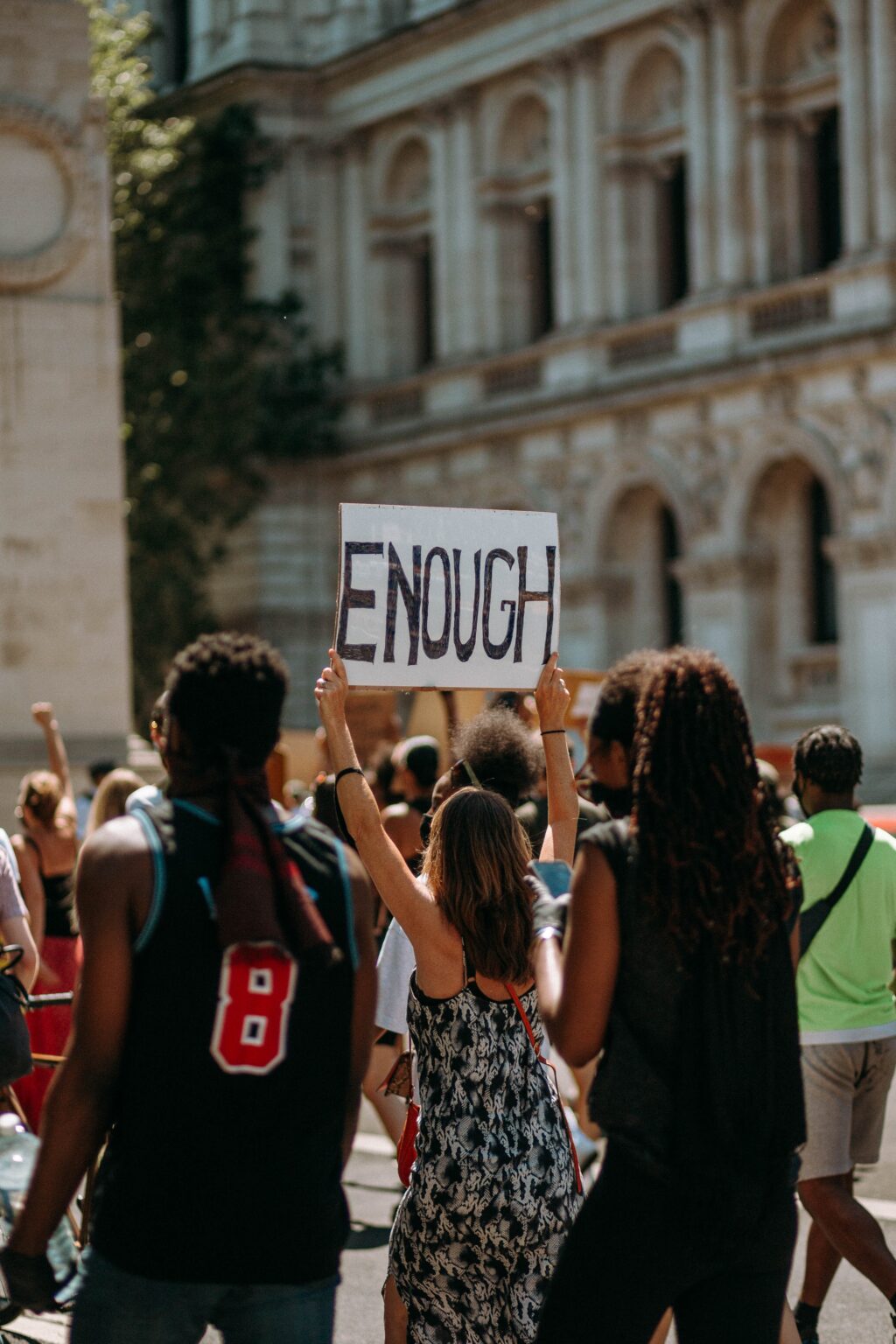
The latest ILGA-Europe Annual Review reported on a deeply worrying rise of violence against LGBTI people in Europe and Central Asia, most of it related to the growing prevalence of hate speech from public figures. Here are the facts in the 34 countries we reported on.
In 2022 there was a stark rise in violence against LGBTI people, not only in numbers but also in the severity of that violence, as reported in the latest edition of our Annual Review of the Human Rights of LGBTI people in Europe and Central Asia. In this blog you will find the main figures and key cases that reflect the situation in every country. Learn more about how LGBTI organisations and activists are boldly responding to anti-LGBTI violence and much more in our full report.
Armenia
In October, two young gay men committed suicide after a photo of them kissing went viral and received endless hate messages. The suicide shook the community. A discussion was broadcast on TV afterwards, featuring anti-LGBT statements.
Pink documented 27 cases of physical and sexual violence, and threats of violence and threats towards LGBT people during 2022, ten of which were committed by family members. These included beatings, stabbings, and other serious attacks. The ten recorded cases of domestic violence on grounds of SOGI were of physical, psychological and economic nature. In most cases, the parents learned about the LGBT identity of the victims, and then beat, harassed, threatened, or locked them up. One case was partner violence. Of the 27 cases of violence, seven were lesbian or bisexual women, 11 were gay or bisexual men, and 12 were trans or non-binary.
Austria
Hate crimes continued to be a serious issue, with over two hundred incidents just in the first three months of the year. The Ministry of Interior’s annual hate crime report documented 376 hate crimes against LGBTIQ people in 2021 although over 80% of the cases may not be reported. SPÖ (Social Democratic Party) also published a report and called for a national strategy against hate, exclusion and discrimination.
Azerbaijan
One of the most prominent LGBTQI+ activists in the country, Avaz Hafizli, was brutally mutilated and murdered by his cousin in February. The police, who previously ignored Hafizli’s requests for protection, wrapped the body in a rug and transported him in a garbage truck.
In August, the court sentenced the perpetrator to nine and a half years in prison but ignored the homophobic motif and the brutality of the murder. Civil society has firmly criticised the meagre judgment, which could have given twice as many years to the killer.
Another human rights activist, Bakhtiyar Hajiyev was kidnapped by masked men and tortured. A man on the metro in Baku threatened to kill LGBT people with a hammer.
On 7 September, a trans woman Emily Hajizade was attacked in Baku Boulevard by the park’s security guards. Emily was also abused by her family, who threatened to kill her. In September too, a trans woman was stabbed several times in Baku’s Narimanov park. She was previously detained and her head was forcibly shaved by the police. The police denied the murder and said they merely detained her. Activists and her family have been unable to find her since.
Bosnia and Herzegovina
Sarajevo Open Centre documented 11 anti-LGBTI hate crimes this year – six were reported to the authorities.
Belgium
The Interfederal Centre for Equal Opportunities (Unia) shared that the number of homophobic hate crimes had been on the rise and continued to grow between 2020-2021.
A study based on 42 testimonies from LGBTQIA+ people was published in May, revealing that underreporting is extremely common in the Brussels region, that the anti-LGBTQIA+ motif of attacks is often unregistered by the police, and investigations rarely yield results.
In August, a study in Flanders found, on the basis of over 400 responses from LGBTQ+ people, that one in four have been subject to threats or physical assault.
Croatia
The Ombudswoman’s annual report found that 2021 marked a sharp increase in anti-LGBT hate crimes. The Ombudswoman affirmed that hate speech by politicians can contribute to such a trend. In July, for instance, three gay men were verbally and physically assaulted in a club.
Estonia
On 9 July, a migrant black trans woman from Jamaica was murdered in her accommodation in downtown Tallinn. Two men were arrested and the investigation is ongoing.
Finland
Pride organisers across Finland said in a survey that vandalism and hate speech were far too common
In the town of Lapua four youngsters detonated a homemade bomb at the other end of a building where a Lapua Pride event was taking place. Lapua Pride also received violent threats in social media. In the town of Mikkeli, a homemade bomb was detonated by two young persons close to where the Pride march was taking place.
The case of high school students in Savonlinna made headlines in August. Several students spoke about suffering anti-LGBT harassment, including death threats, intimidation, being followed home, and being almost run over by cars. The students have been targeted by these attacks for years and had not received support from the school or the police.
France
The Ministry of Interior shared that the number of anti-LGBTI hate crimes rose by 28% between 2020-2021. Between 2016-2021, the number of incidents doubled. 2021 saw a temporary decrease presumably due to the COVID-19 pandemic. The Ministry also highlighted that these numbers are in no way total, as a mere 20% of victims report threats and attacks to the police.
SOS Homophobie found a similar increase this year, noting the high rates of anti-trans insults and violence.
Georgia
Trans women were verbally abused and their home was attacked in May – the police made no arrests. In November, a cisgender woman was killed in Tbilisi. The perpetrator was under the impression that the woman was trans.
Germany
Hate crimes continued to be a serious issue this year, but about 90% of cases continue to go unreported. In Berlin, for instance, anti-LGBTI hate crimes rose by 17% in the past year. Lower Saxony also recorded an increase in homophobic crimes. The fatal attack against a trans man, who tried to stop a man from harassing two women at a Pride march, shook the community.
Greece
The national hate crime monitoring body’s annual report, published in May, found that crimes against LGBTQI+ people continued to be very common in 2021.
Hungary
Several hate crimes were committed this year, with the perpetrators in some cases referring to the 2021 ‘propaganda’ law as being “on their side”.
Iceland
Several hate crimes took place this year and were reported to the police. Anti-LGBTQI+ ‘barking’ grew increasingly common this year.
In August, the rainbow-coloured steps of a church were repeatedly vandalised. Also in August, nine rainbow flags were ripped down in Hellu, another flag in Kópavogur was vandalised, and posters were tagged with nazi symbols.
Samtökin ‘78 received ten reports of anti-LGBTQ harassment following Pride week.
Ireland
Hate crimes against LGBTQI+ people continued to be a serious issue, also affirmed by the government, the police’s annual hate crime statistics, and Dublin City where bias-motivated violence has become a particular concern.
In April, two men were murdered in separate homophobic attacks in the town of Sligo – a 22-yearold man awaits trial. Vigils were held in over 25 cities and towns.
Italy
In the follow-up of the Zan law having failed in 2021, anti-LGBT hate crimes continued (see a list of attacks here and here). Three migrant sex workers, including a trans woman, were murdered in Rome in November. In June, a trans woman who was suspended from her teaching job after socially transitioning committed suicide. A 19-year-old trans girl, Chiara committed suicide in October. Another trans woman, also called Chiara, took her own life in June.
The national observatory on lesbophobia published its report documenting one lesbophobic hate crime per month between 2011 and 2021. Non Una Di Meno’s monitoring work identified 112 lesbophobic and transphobic murders nationwide in 2022.
Latvia
Mozaika documented nine anti-LGBT hate crimes this year. None of the victims reported the cases to the police.
Kyrgystan
Kyrgyz Indigo’s (KI) Urgent Response Group provided legal consultation in 105 cases this year, which included outings and threats (18%), fake dates and blackmail (13%), physical violence (10%), family violence (16%), theft and extortion (10%), and police violence (20%). More than a third of the fake date cases were perpetrated by the police.
Montenegro
The LGBTI Drop-in Centre in Podgorica was vandalised with fascist and anti-LGBTI messages in July. The Prosecutor’s Office launched an investigation and the police have identified the perpetrators. On 21 December, Juventas’ LGBTIQ Centre in Podgorica was attacked. Police responded quickly in identifying the attackers.
Netherlands
The government reported 2,471 anti-LGBTI violence and discrimination cases in 2021, up from 2,336 in 2020 and 2,072 in 2019.
The Social and Cultural Planning Office’s (SCP) study, published in July, found that LGBT people face disproportionate rates of violence, one in three bisexual women has experienced sexual violence in the past five years and 44% have been targeted by online or offline sexual harassment in the past year.
A new report, ‘Invisible in Two Worlds’ found that trans people face domestic violence in great numbers, and that state assistance is inadequate.
North Macedonia
Coalition Margins documented four gender based/ domestic anti-LGBT hate crimes.
Norway
On June 25, a gunman killed two people and wounded more than 20 people outside Oslo’s queer haven and oldest queer bar, the London Pub. The terrorist attack, which was carried out during Pride week and on the night before the Oslo Pride march, shook the community and the country and was widely condemned.
The 2021 hate crimes report of the police found a drastic increase in anti-LGBT hate crimes, from 97 in 2020 to 240 in 2021.
Portugal
Between January and early December this year, ILGA Portugal received a total of 830 requests for contact or immediate support in cases of violence at home, loss of income, and evictions. Of these, 268 came from people who reached out for the first time. 220 cases of domestic violence and assault were reported this year, of which 71 were cases of gender-based violence.
Romania
Four hate crimes were perpetrated over the span of three weeks in the summer – all were reported to the police. Leaflets showing a gay man in a gas chamber and a nazi soldier pressing the gas button were left in MozaiQ’s courtyard in August. Civil society attributed the rise in violence to the tabling of the ‘propaganda’ bill. There was a clear rise in hate crimes during Bucharest Pride – over 20 victims asked ACCEPT for legal advice.
Russia
Hate crimes against LGBTI people, including murder, physical violence and extortion were committed again this year. The authorities failed to classify them as anti-LGBTI hate crimes.
Serbia
In its annual hate crime report, Da se zna! documented the highest number of anti-LGBT incidents since 2017: 83 cases of anti-LGBT hate crimes, hate speech, and discrimination in 2021, marking a 38% increase compared to 2020 (52). The number of hate crime cases sharply increased in August and September following a series of hateful statements by political and religious leaders. EuroPride billboards were vandalised.
The Belgrade Pride Info Centre was again attacked in February and October. For the first time, a politician, Belgrade’s deputy mayor Goran Vesić condemned the violence. None of the perpetrators in the 14 attacks have been prosecuted.
Several people were attacked during, directly after and in the weeks after EuroPride.
Slovakia
On 12 October, two young men Matúš Horváth and Juraj Vankulič were murdered by a gunman outside one of Bratislava’s two queer bars, Tepláreň. The gunman wounded a woman as well and claimed responsibility for the unprecedented white supremacist terrorist attack before killing himself. This was the first terrorist attack in modern Slovak history.
Civil society had warned about the consequences of the growing anti-LGBT political rhetoric and the inadequate response to hate crimes by law enforcement before – many have interpreted the murder as the culmination of the past years.
Slovenia
Legebitra documented four hate crimes and two cases of vandalism.
Spain
The annual report of the Ministry of Interior documented a record number of 466 anti-LGBT hate crimes in 2021 (2020: 277), with one in every four hate crimes targeting LGBT people. This is a 68% increase in one year. Coruña’s Observatory against LGBTI-phobia published its fourth annual report, finding a 71% increase in cases compared to 2021.
Anti-LGBTI murals and graffiti were also common this year. Several rainbow-coloured benches were vandalised in small towns again this year (see here and here).
Sweden
The concept Drag Queen Story Hour, during which drag artists read fairy tales to children in libraries, came under serious attack this year.
Switzerland
Anti-LGBT attacks continued to be an issue, with the number of hate crimes increasing. The joint report by TGNS, LOS, and Pink Cross documented 96 anti-LGBTQ hate crimes in 2021 – 50% more than the previous year. The majority of the incidents took place close to the 2021 referendum and parliamentary action on marriage equality. There was a sharp increase in transphobic hate crimes reported.
Turkey
Kaos GL’s annual monitoring report found that 2021 was one of the most violent years against the community to date, with eight recorded murders but suspects the actual number of murders is higher. The report also highlights the issue of widespread police violence, torture and ill-treatment, and unlawful detention, particularly at demonstrations. It was also reported that 30 per cent of all violations against LGBTI+ were about freedom of assembly and expression.
Ukraine
Nash Mir’s annual report documented 55 hate crimes against LGBT people in 2021. Nash Mir documented more than 75 hate crimes in 2022, the majority of which were in some way connected to military operations. Nash Mir noted that the numbers might be much higher as it was difficult to document cases in occupied territories.
United Kingdom
Hate crimes against LGBT people in the UK have reached dramatic numbers. The UK Home Office’s annual hate crime statistics report highlighted that homophobic hate crimes increased by 41% and transphobic hate crimes by 56%, in England and Wales. This marks the starkest annual increase since 2012. The report attributes the rise in transphobic hate crimes in part to anti-trans media reporting. Galop’s 2022 Hate Crime Report echoed these numbers and the reasons behind them.
In Northern Ireland, there were more hate incidents recorded across each hate motivation strand when compared with the previous twelve months (with the exception of faith/religion incidents) with 15% increase in homophobic and 24% in transphobic incidents. Research carried out by The Rainbow Project in 2021, has shown that 51% of those who had experienced hate crime had not reported it to the Police Services of Northern Ireland. The most common response was that they are still not confident that their complaints will be taken seriously, some unaware that PSNI can take action and were fearful of repercussions.
Galop’s report ‘LGBT+ Experiences of Abuse from Family Members’ highlighted that 29% of LGBT+ people have experienced abuse from family members – 60% attributed this to them being LGBT+. 63% of the victims were under 18 when they first faced violence at home. Galop’s adjoining report warned that support services for LGBT+ victims are rare and insufficient. Galop also published its ‘LGBT+ People & Sexual Violence Report’ on the basis of almost 1,000 LGBT+ survivors. More than half thought that the violence was inflicted upon them due to them being LGBT+ and most reported detrimental consequences on their mental health.
Search for your country chapter in our Annual Review of the Human Rights Situation of LGBTI People in Europe and Central Asia here.
For good and bad: The trending impacts on LGBTI human rights in Europe and Central Asia
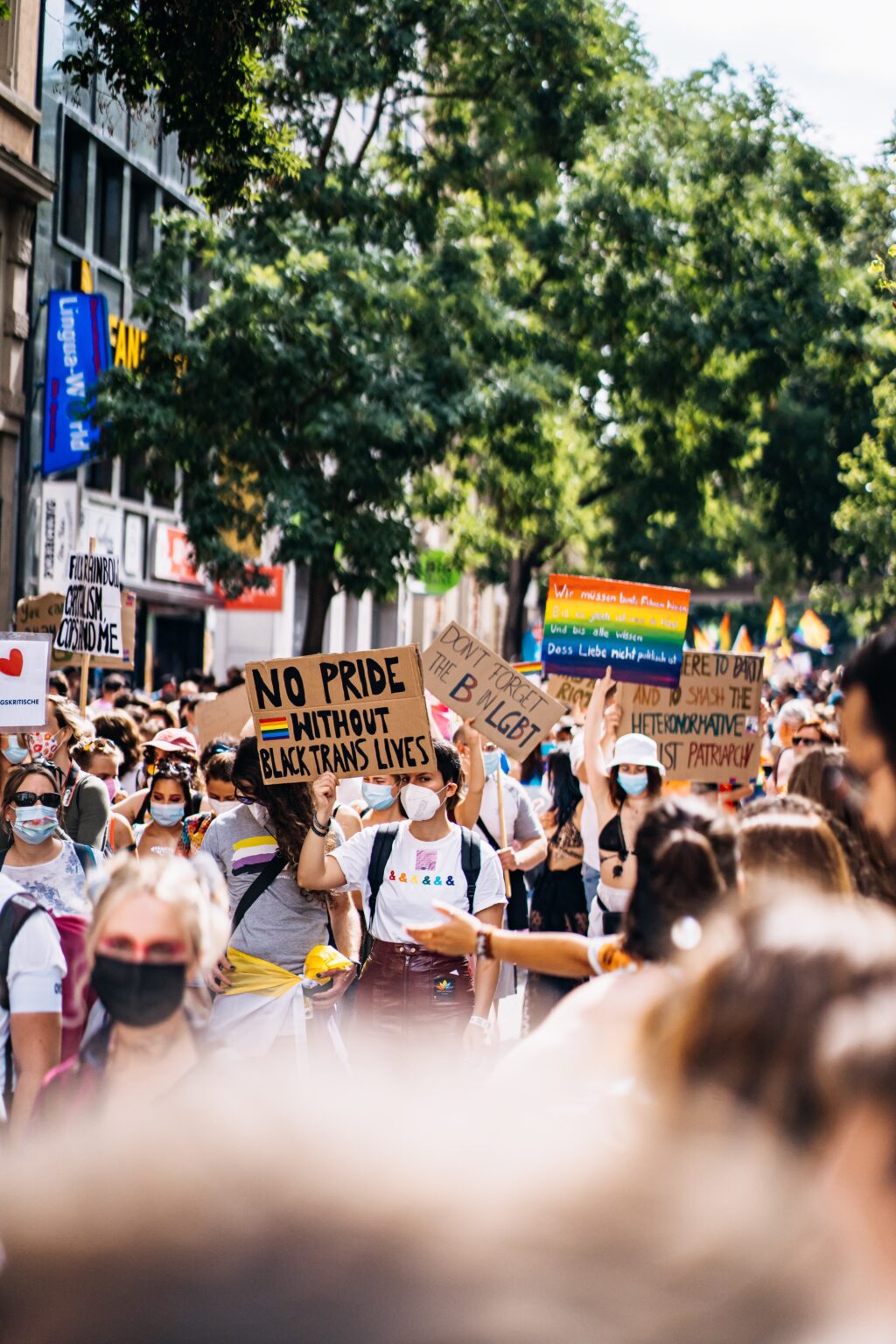
The most striking finding of ILGA-Europe’s Annual Review 2023 is a stark rise in the ferocity of anti-LGBTI hate and violence reported in Europe and Central Asia. But alongside this worrying trend, there are positive developments in areas such as legal gender recognition, public support, intersex human rights and civil society. Here are the key highlights.
At ILGA-Europe we’ve just published our Annual Review, showcasing the main developments and trends in the human rights Situation for LGBTI people in Europe and Central Asia. Disturbingly, the most striking finding this year is the levels of hate reported in the region. 12 years into this yearly reporting, the present edition finds that anti-LGBTI violence in 2022 was more targeted and extreme than ever in the history of our reporting.
Our Annual Review aims to paint a clear picture of the reality from the ground for our communities. It documents individual cases and events, as well as legislative, social and political advancements and regressions, and new available data. All reporting is based on the work of LGBTI activists in each country featured in these pages, as well as on our own work.
While the review points to the devastating consequences of the instrumentalisation of LGBTI people, mostly for political gain, there have been other developments in the direction of human rights and protection of LGBTI people.
We have not seen this severity of the violence before
For years, ILGA-Europe has been documenting the rise in hate while activists across the region have shown how anti-LGBTI speech, both online and by political and religious leaders, translates into violence harming people.
This phenomenon is across the board in this year’s Annual Review. For example, in France, the Ministry of Interior reported a 28% rise in hate crimes between 2020 and 2021. In Switzerland, LGBTI organisations reported a 50% increase between 2020 and 2021. Spain reported a 68% increase in 2021, while in England and Wales transphobic incidents rose by 56%.
There are also more reports than ever before of LGBTI people taking their lives, a clear sign how discrimination, hate speech and harassment are impacting mental health. In Italy, three trans women took their lives. Two of them were teenagers, the third woman was a teacher, who was suspended from school because she had socially transitioned. In Armenia, a young gay couple committed suicide after suffering harassment when a photo of them kissing went viral. These are just a few examples.
Sexual education is increasingly compromised
Education is a growing battleground in the resistance to LGBTI people and rights. In Hungary, as result of law banning LGBT content, teachers reported a fear of bringing sexual orientation, gender identity and other topics to the classrooms. In the Netherlands, 36 orthodox schools require anti-LGBTI declarations from pupils and parents, and the new Italian Prime Minister, Giorgia Meloni has publicly advocated for a ban on sex education in schools and the exclusion of LGBT people in children’s books.
Russia expanded its ‘propaganda law’ to prohibit positive and neutral information about LGBT people and “gender reassignment” to minors and adults. There was an alarming number of ‘propaganda’ charges or threats in educational establishments in the country. All in all, progression on sexual education is being challenged.
Public support for LGBTI people is growing
In parallel, the report finds growing support among societies for LGBTI people, also in countries where we might not expect it. For example, most Hungarians don’t consider ‘homosexual propaganda’ an important issue. In Poland, two thirds of the population support marriage equality and 60% support the abolition of anti-LGBT resolutions in the country.
What’s more, many politicians across Europe have shown their support throughout 2022. Many reacted with horror to the killings in Oslo and Bratislava and the European Parliament has publicly condemned the violations of LGBTI rights. We need more governments standing strong against hate in the media and online and more progress in advancing laws against hate crimes that protect LGBTI people.
There are more legal gender recognition laws that include self-determination
In the face of enormous backlash on trans people, and a number of forces trying to stop legal gender recognition (LGR), some countries made progress in 2022 and others showed a will to ensure a model of LGR based on self-determination.
Scotland, Finland and Spain were the best examples; by adopting LGR laws that include self-determination, these countries are showing a clear way forward for other governments.
Same-sex partnership is back on the agenda
After stagnating for a number of years, same-sex partnership recognition is on the rise again. Andorra adopted legislation to ensure heterosexual marriage and the recognition of same-sex civil partnerships guarantee the same set of rights. In Latvia, following a Supreme court decision ruling that same-sex couples should be given civil status, same-sex couples were recognised in court cases. Slovenia and Switzerland adopted marriage equality, including positive changes regarding adoption rights. Other countries took steps forward the adoption of laws that recognise same-sex partnerships.
While intersex human rights are rightfully taking a space in the agenda
There is also a growing awareness of intersex human rights across Europe. While Greece adopted a ban on non-vital medical interventions on children, the European Commission conducted surveys and interviews for the first EU study on the lives of intersex people and their parents (expected to be published this summer). The Council of Europe is preparing a Recommendation on intersex human rights while the Chair of European Commission against Racism and Intolerance and PACE General Rapporteur for the rights of LGBTI people shared supportive statements.
Behind every positive development, there are LGBTI activists doing hard work
LGBTI organisations and activists across our region are key to all the advances on LGBTI people’s rights and the support to their communities during 2022.
Despite difficult circumstances, more and more Prides are being organised, support for the most vulnerable in the community is provided and work with institutions and policy makers continues advancing LGBTI people rights.
More and more organisations report covering for gaps in service provision, and providing services where the community does not feel safe to access mainstreaming services, for example when it comes to shelter.
The most remarkable support was that of the LGBTI community in Ukraine through LGBTI organisations, as well as the support by activists across Europe for Ukrainian LGBTI refugees.
LGBTI activists are the central players in countries where progress has been made, as we’ve seen in Spain and Finland, where huge effort went into successfully keeping self-determined legal gender recognition on the right political track, despite fierce opposition.
The Annual Review of the Human Rights Situation of LGBTI People in Europe and Central Asia is published every February, as part of our Rainbow Europe package. We thank all those across 54 countries who worked with us to make sure our reporting was accurate.
Find out what’s been happening in your country here.
Deadliest Rise in Anti-LGBTI Violence in Over a Decade, our annual Report Shows

12 years into annually reporting on the human rights situation of LGBTI people, Europe’s leading LGBTI equality organisation finds that pervasive hate speech across the region has led to life or death consequences.
Launched today in Brussels, ILGA-Europe’s Annual Review of the Human Rights Situation of LGBTI People in Europe and Central Asia finds that 2022 was the most violent year for LGBTI people across the region in the past decade, both through planned, ferocious attacks and through suicides in the wake of rising and widespread hate speech from politicians, religious leaders, right-wing organisations and media pundits.
This is the 12th edition of ILGA-Europe’s report, which has charted the growing phenomenon of anti-LGBTI speech, as antipathy for LGBTI people has been driven and then exploited for political gain. It finds that as a result, attacks on LGBTI people with a conscious and deliberate will to kill and injure have increased to unprecedented levels, including two terror attacks outside LGBTI bars in Norway and Slovakia, which combined killed four people and maimed 22. There are reports of more murders and many suicides of LGBTI people across Europe, and not only in countries that are seen to be more regressive.
According to ILGA-Europe’s Executive Director, Evelyne Paradis: “At ILGA-Europe, we have been saying for years now that hate speech in all its forms translates into actual physical violence. This year, we have seen that violence become increasingly planned and deadly, leaving LGBTI people feeling unsafe in countries across Europe. We have seen proof that anti-LGBTI hate speech is not just the words of marginal leaders or would-be autocrats, but a real problem with dire consequences for people and communities. This phenomenon is not only in countries where hate speech is rife, but also in countries where it is widely believed that LGBTI people are progressively accepted.”
The report finds that while hate speech and its consequences have reached critical levels, national and local courts are reacting and prosecutions are on the rise in several countries. But according to Paradis, reaction is not enough.
“While we are getting better at dealing with outcomes, the focus has to be on stopping hate speech in all its forms. Across Europe, many politicians have reacted with horror to the killings of LGBTI people this year, and while clear expressions of solidarity are always needed, it does not address the foundation of the problem, which is the proliferation of using hatred against LGBTI people for political gain. Our leaders need to find ways to proactively fight the rise of hate speech, rather than finding themselves in the position of reacting to its consequences.”
It is not all bad news. There has been much progress reported in several countries, with the Review consistently finding that it is activists and their communities who are driving positive social change and managing to push legal protection forward, despite organised opposition.
According to Katrin Hugendubel, Advocacy Director with ILGA-Europe: “LGBTI activists are the central players in countries where progress has been made, as we’ve seen in Spain and Finland, where huge effort went into successfully keeping self-determined legal gender recognition on the right political track, despite fierce opposition. This is true of every issue that affects LGBTI communities across the region, showing that LGBTI people and organisations remain empowered and continue to make change happen.”
The 12th ILGA-Europe Annual Review is available here, alongside all the previous Annual Reports, charting the phenomenon of rising anti-LGBTI hate speech in Europe and Central Asia, and its consequences.
According to Paradis: “These successive reports tell a story of cause and effect that is not going to go away or diminish until politicians and policy makers understand that they have to get ahead of the problem. In the current climate, progressive leaders must find effective ways to tackle hate speech in all its forms, instead of finding themselves on the back foot, expressing sympathy for the families of the needlessly murdered, or those who have taken their own lives, while hatred continues to be fostered and exploited.”
For further comment, contact: Ana Muñoz Padrós, ILGA-Europe: ana@ilga-europe.org, +32 493 35 60 55
5 reasons why sex workers’ rights in the EU must be protected
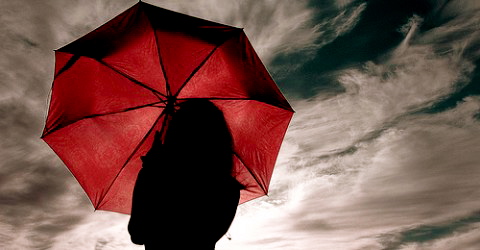
If we want to protect the human rights of sex workers, consensual sex work must be decriminalised. Read why and endorse our letter below
When we talk about consensual sex work, we’re talking about adults voluntarily choosing to engage in sex work. This means that they are not being forced or coerced into the work, and are free to leave at any time. They have agency and control over their own bodies, and are able to negotiate the terms and conditions of their work.
To be clear, consensual sex work is not trafficking or exploitation. Trafficking is a serious human rights violation, and an extremely worrying reality across Europe, Central Asia and beyond. Consensual sex work involves a sex worker making a choice about their own livelihood and remaining in control of that choice.
Decriminalisation of consensual sex work is important because it allows for the protection of people engaged in sex work. It allows a safer and more regulated environment where their rights to personal autonomy, privacy and other fundamental rights can be better protected.
Many LGBTI people engage in sex work, some because they want to, some because discrimination and other structural exclusion due to social injustice leave them with little option. The experiences of LGBTI people in the sex work industry can be particularly challenging, due to the intersection of stigma related to both their SOGIESC and their profession. Combatting social injustices, discrimination and stigma is key to all of ILGA-Europe’s work; additionally, people need to be protected, regardless of their reasons to engage in sex work.
What happens when sex work is criminalised?
Research shows that criminalisation of any aspect of sex work has proven to be ineffective. Instead of protecting sex workers, it pushes them further to the edges of our societies in their working and daily lives. For example, in the parts of Europe where sex work is criminalised, sex workers working together are regularly prosecuted for brothel-keeping, even though it’s by working together that they can stay safe. Sex workers who have kids risk losing custody of their children, those who are migrants risk losing their residence permits, and all risk homelessness when authorities force landlords to evict them. Instead of protecting sex workers, criminalising policies impede their access to homes, services, safety and justice, while at the same time propelling stigma, violence and discrimination against them.
5 reasons why the European Parliament must protect sex workers
Policy makers must listen to the voices of sex workers, including LGBTI sex workers, in the development of policies that affect them. Particularly now, when the members of the European Parliament are discussing the proposal on Violence against women and domestic violence, they must reject any attempts to criminalise any aspects of consensual sex work among adults. Criminalisation is not the solution.
Here are a handful clear and fair reasons for the EU policy makers should ensure protection of rights of sex workers:
Respect for human rights
Criminalising consensual sex work is a violation of the human rights of sex workers, including their rights to privacy, security, and freedom from discrimination provided in the Charter of Fundamental Rights. The EU is committed to protecting human rights, and criminalising consensual sex work is contradictory to this principle.
Gender equality
The EU is committed to promoting gender equality, while criminalising consensual sex work disproportionately affects women and other marginalised groups, including LGBTI people.
Public health
Criminalising consensual sex work can make it more difficult for sex workers to access healthcare and other services, which can put them at greater risk of health problems
Right to self-determination
Criminalising consensual sex work is an infringement on the right of sex workers to make decisions about their own bodies and livelihoods.
negative Effectiveness
There is a lack of evidence that criminalising consensual sex work is effective in reducing the number of sex workers or in improving their safety. Some studies have shown that criminalisation can actually increase risks of violence for sex workers.
If you represent a civil society organisation, you can endorse our letter, prepared along with the members of the Coalition on Sex Workers’ Rights and Inclusion, here.
#TDoR2022: Two more European countries added to annual report on trans murders
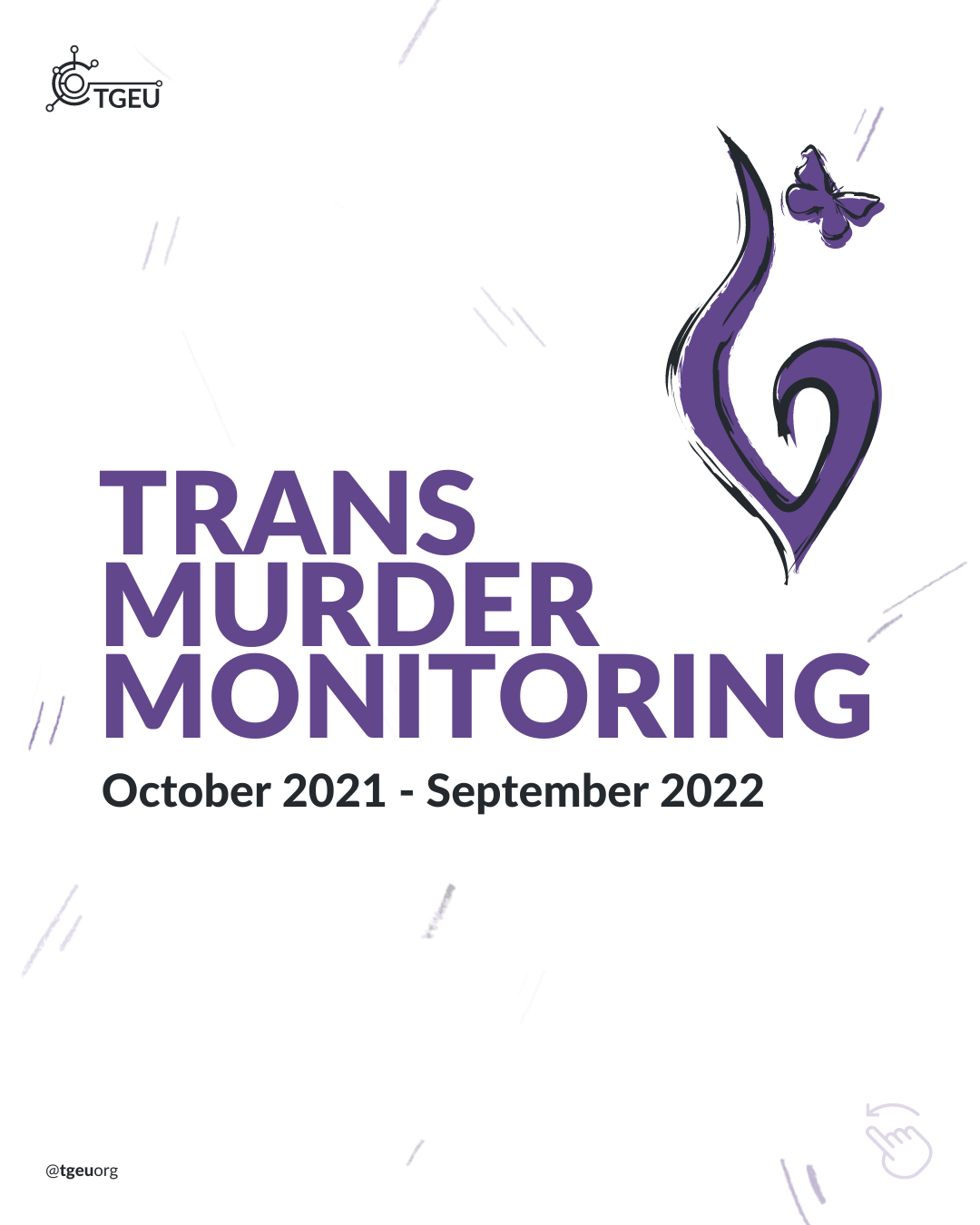
This year, for the first time, Estonia and Switzerland reported the murders of trans people. In total, the last twelve months saw 327 reported murders of trans and gender-diverse people in the world as a result of anti-trans violence, according to TGEU’s Trans Murder Monitoring. Although TGEU has been collecting information since 2008, most trans murders still go under-reported.
Sabrina Houston and Cristina Blackstar were both migrant, black and trans. They were both stabbed to death in their own homes earlier this year. They are two of the 327 reported murdered trans and gender-diverse people across the globe, according to the latest Trans Murder Monitoring report, published by TGEU in advance of Trans Day of Remembrance.
Trans Day of Remembrance (TDoR) is marked each November 20 to commemorate trans people whose lives were lost as a result of anti-trans violence. Sabrina and Cristina had their lives cut short in two countries that have not reported victims before: Sabrina was murdered in Taillin, Estonia and Cristina in Lausanne, Switzerland.
As with 96% of reported victims, Sabrina and Cristina were trans women or femmes. They were also racialised, as were 65% of the cases with data on race and ethnicity. Coming from Jamaica and Brazil respectively, Sabrina and Cristina were migrants, as were 36% of the trans people reported murdered in Europe. France, Georgia, Germany, Italy, the Netherlands, Sweden, Turkey and the United Kingdom are the other European countries which have reported victims too. In total, 14 victims were reported in the region, same as last year. With 222 cases, Latin America and the Caribbean continues to be the region reporting most of murders of trans people. No victims were recorded in Central Asia.
More key figures:
- Half of murdered trans people whose occupation is known were sex workers;
- 35% of the murders took place on the street and 27% in their own residence;
- Most of the victims who were murdered were between 31 and 40 years old.
Altogether, the data continues to indicate a worrying global trend when it comes to the intersections of misogyny, racism, xenophobia, and hatred against sex workers, with most victims being Black and migrant trans women of colour, and trans sex workers. According to TGEU, these numbers are just a small glimpse into the reality on the ground. Most cases continue to go un-reported and, when reported, receive very little attention. “The Trans Murder Monitoring exists not only to highlight the horrific murders of trans people worldwide,” says Lukas Berredo from TGEU “but also to show the need to ensure that the voices of the most marginalised in our communities are heard and amplified.
Hundreds of trans and gender-diverse people are killed each year around the world as a result of transphobic violence. The murders of Sabrina and Cristina come at a time when anti-trans and trans-exclusionary rhetoric is on the rise in European countries. Decision makers must take a stance against anti-trans forces and in defence of human rights, so that everyone can enjoy their life in equality, freedom and safety.
The Frontline: LGBTI Equality and Accession to The EU
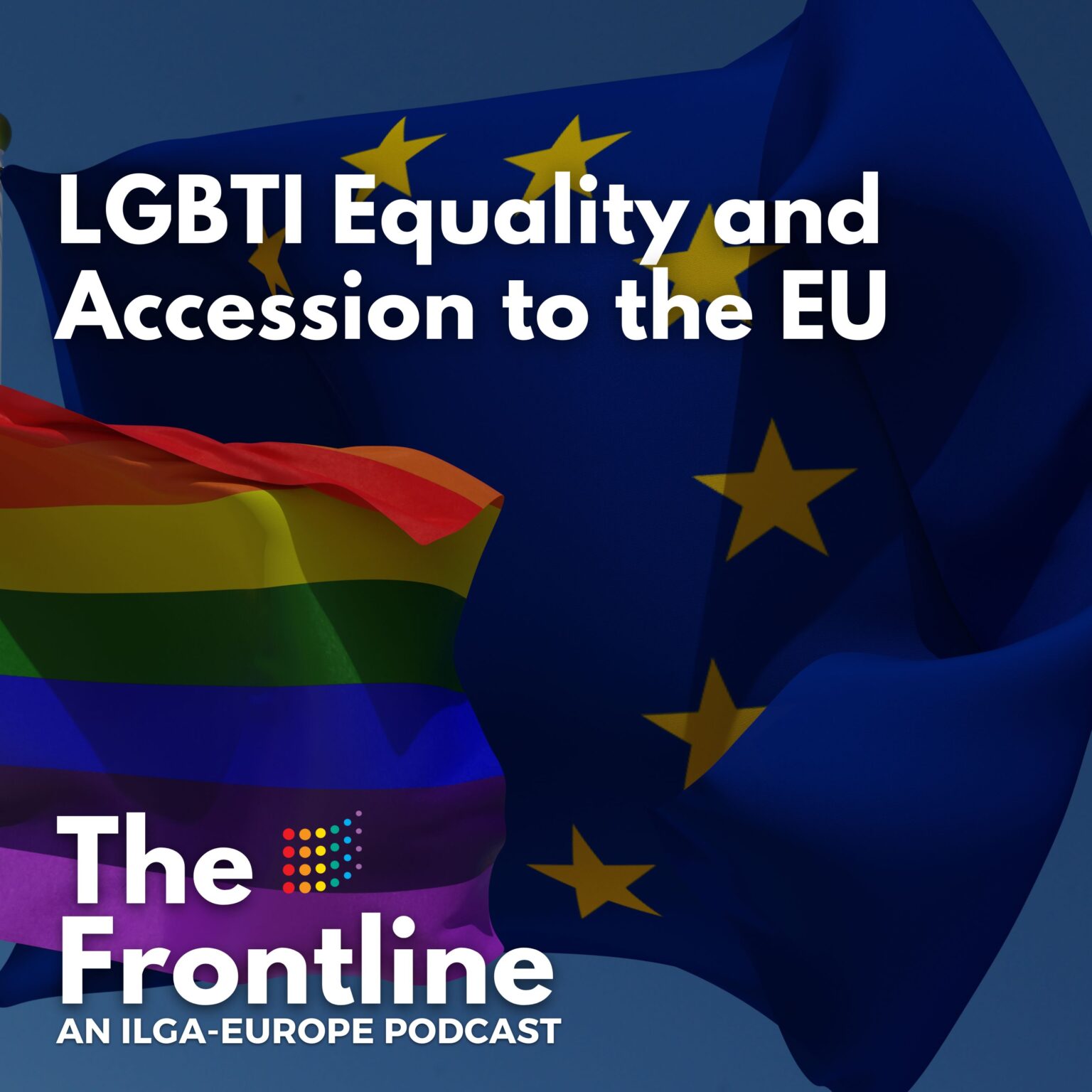
In this two-part episode of The Frontline podcast, presented by Belinda Dear, we’re looking at the new wave of accession to the European Union and what it will mean for LGBTI people.
With the recent news that Ukraine and Moldova are now candidates to the EU, the topic of EU accession is on the radar again, while Western Balkan countries such as Serbia, North Macedonia and Montenegro have been going through the process for some years now, and Turkey not acceded since its application in 1987.
With the current state of LGBTI rights in Central Europe, highlighted most recently by the Serbian government’s anti-democratic instrumentalising of LGBTI people in an effort to try to stop EuroPride in Belgrade, how does this kind of backsliding play into the accession process? And what about countries like Ukraine, where LGBTI rights have barely been on the governmental agenda? What are the opportunities to be gained by candidacy for joining the EU?
To discuss these questions and more, we’re joined by former member of European Parliament, Marije Cornelissen, who has worked extensively on the accession process, Lenny Emson from Kyiv Pride in Ukraine, Anastasia Danilova from GENDERDOC-M in Moldova, and Danijel Kalezić, who worked for years as the Executive Director of Queer Montenegro, but has now become the Co-director of ERA, the LGBTI Equal Rights Association for the Western Balkans and Turkey . We’re also joined by our Advocacy Director, Katrin Hugendubel to talk about ILGA-Europe’s deep and long-term experience of working on accession countries, which has been happening for 25 years now.
Listen below or click here to listen and subscribe to The Frontline on your favourite podcast platform.
The timeline leading from anti-LGBTI Instagram posts to the “honour killing” of an LGBTI activist in Azerbaijan
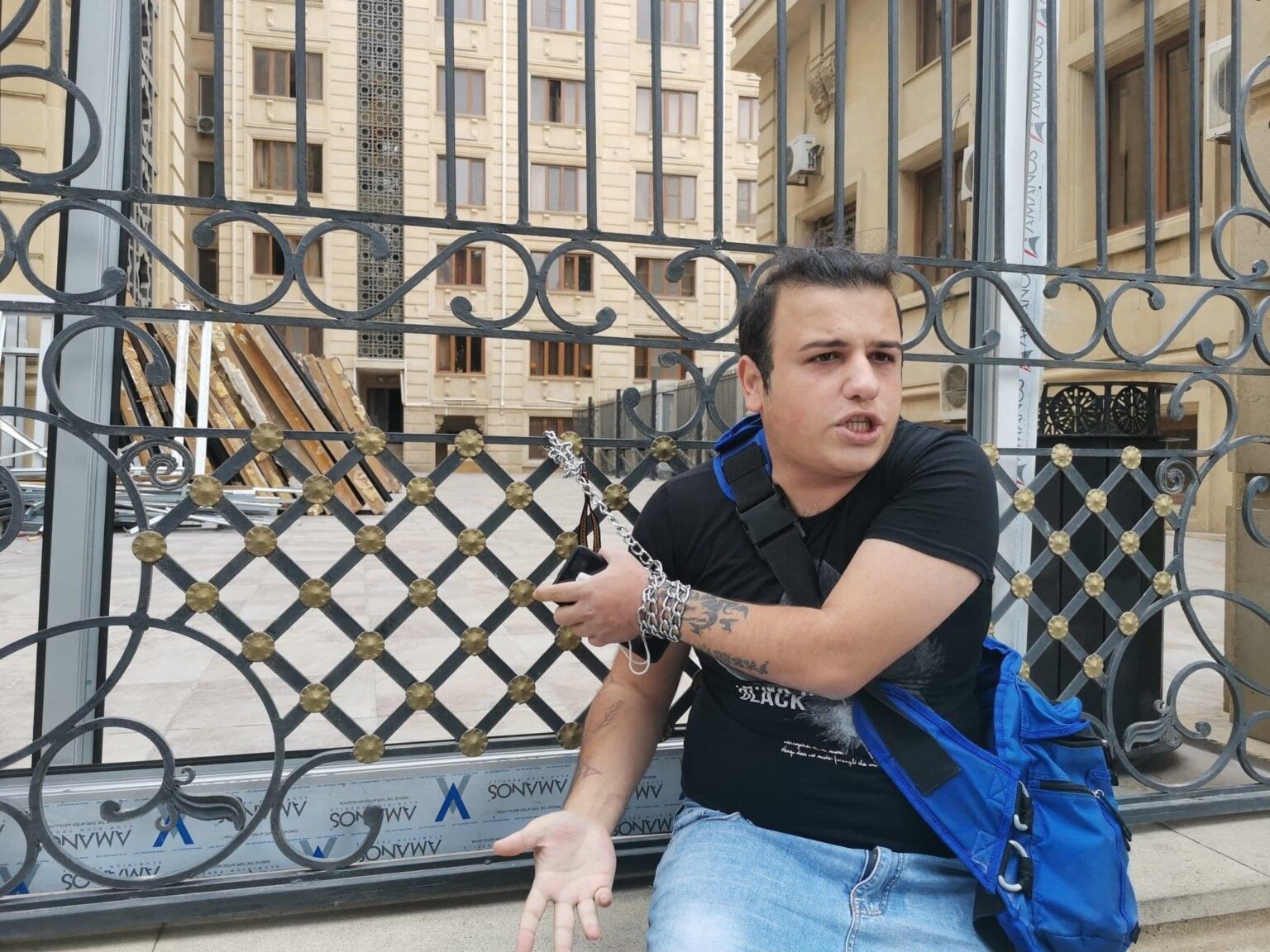
The cousin of LGBTI activist Avaz Hafizli has been jailed for his horrific murder, which came on foot of protests against hateful Instagram posts by the Instagram star, Sevinj Huseynova, who called for the physical ‘removal’ of sexual minorities and trans people from Azerbaijan. The trial was a travesty of justice, according to activists.
On 22 February 2022, the Azeri LGBTQ+ activist and journalist, Avaz Hafizli was brutally murdered by his cousin, 24-year-old Amrulla Gulaliyev. Local LGBTI activists in Azerbaijan believe the murder was motivated by homophobic bias and to protect the “honour” of the family.
The case has been investigated and last month Gulaliyev was sentenced to nine years and six months by Baku Court of Grave Crimes. During the investigation the additional details of the murder were not considered, namely the brutal circumstances of the killing and sexual mutilation of Avaz’ corpse. LGBTI activists were also barred from the court. Gulaliyev was sentenced without any consideration of a biased motive, which would have carried with it double the length of sentence.
ILGA-Europe believe that Azerbaijan failed to fulfil its human rights obligation to prompt, thorough, impartial, and independent investigation to hold responsible person to account for “honour killing” and hate crime as it did not take aggravating circumstances into account when determining sentence.
Avaz’s murder came in the wake of Instagram posts last year by Azerbaijani social media influencer, Sevinj Huseynova, who called for the physical ‘removal’ of sexual minorities and trans people from Azerbaijan in a video that was watched by thousands.
Here is a timeline in the lead-up to Avaz’ murder and the conviction of his cousin, and why it is an example of a stacked system against LGBTI people and the activist movement in Azerbaijan.
July 7, 2021
Azeri Instagram star, Sevinj Huseynova shared a video on her Instagram account in which she humiliated LGBTIs, especially trans women, and encouraged hatred and hostility towards them.
July 9, 2021
A group of trans women made an official appeal to the 17th police station and demanded that Sevinj Huseynova be brought to justice. Despite the appeal, no legal action was taken against Huseynova.
July 16, 2021
Three people were attacked due to their gender in their private house in Khirdalan settlement, Absheron region, and one of them was injured with three stab wounds.
August 13, 2021
Four LGBTI people were attacked in one of the buildings located on Heydar Aliyev Avenue in Khirdalan settlement. One of them was injured.
August 23, 2021
The burned body of Nuray, a trans woman targeted by Sevinj Huseynova, was found by locals in the Buta settlement of Garadagh district.
August 25, 2021
A group of trans women gathered in front of the Garadagh District Police Department and held a protest regarding the murder of the trans woman Nuray. Later, they gathered in front of the Ombudsman’s office and put forward demands. Avaz Hafizli was one of the organisers of the protest. He was vocal in criticising the police for not taking any action against Huseynova, and about the attacks in the wake of Huseynova’s Instagram video.
September 5, 2021
Avaz Hafizli attempted suicide after he was personally threatened and insulted by Sevinj Huseynova.
September 8, 2021
Avaz chained himself to the fences of the Prosecutor General’s, as protest against Huseynova threatening and insulting him and his family. Despite Avaz Hafizli’s official appeal to the prosecutor’s office, no action was taken.
September 10, 2021
Avaz held a one-person rally in the centre of Baku to protest the transphobic and homophobic hate speech by Huseynova. He held up a sign reading “LGBT rights, human rights” and chanted “down with homophobia.” Avaz expressed dissatisfaction with the failure of state agencies to respond to Huseynova’s threatening calls.
February 22, 2022
Avaz was murdered by his cousin, 24-year-old Amrulla Gulaliyev. The murder was conducted in a gruesome fashion, followed by mutilations of Avaz’ body after his death. Gulaliyev was subsequently arrested, and was charged only with the Article 120.1 of Criminal Code – Deliberate murder.
June 20, 2022
The preliminary hearing was held by the judge of Baku Court of Grave Crimes, Ali Mammadov.
July 18, 2022
Having been postponed on July 4, the second hearing was held. Hearings are open to the public, however civil society representatives were not allowed to attend.
Avaz’ brother represented him in the court and said he did not have any complaints against the perpetrator, his cousin. The court then asked Avaz’ mother to represent him. She said she would have to think about it.
There were some contradictions in perpetrator’s statements to police and his testimony in court. He originally told investigators that he had planned the murder three months before the event itself, however during the hearing he denied this. He said that had he and Avaz had been living in the same house for many years, and that only in 2022 did he decide to murder Avaz because of the moral ethics of society.
After repeated requests from LGBTI activists to attend the hearings, only three were allowed with the argument that ‘there are limited places’. However when the activists entered the court room there was sufficient space to have accommodated all the requests of activists to attend.
July 29, 2022
The three activists managed to attend the concluding hearing, at which Amrulla Gulaliyev was sentenced to nine years and six months in prison.
It is unclear to civil society whether the court’s decision will be appealed, as there is no contact with Avaz’ mother, who is his legal representative in this case.
Why this case is important for the Azeri movement and every LGBTI person in Azerbaijan
Over decades of monitoring by local activists, incidents of hate speech and hate crime in Azerbaijan have been numerous and severe. The state has taken no action to tackle homophobia at societal level, while existing legal mechanisms have not been implemented to protect LGBTI people from hate speech or attacks.
But this case shows how both the state and the family as institutions fail LGBTI people. While activists have gained sufficient legal knowledge and formed partnerships to offer legal support, they cannot intervene in cases where the family are both the perpetrators and the legal representatives of the victim at the same time.
The Azeri state’s efforts to silence the truth about this anti-LGBTI honour killing by not allowing the activists to access court hearings also adds to the impunity for such grave acts against this LGBTI people, who remain the most unprotected and vulnerable group in the face of homophobia in Azerbaijan.
Briefing Note: Securing access to border crossings for vulnerable LGBTI people in the context of the war in Ukraine
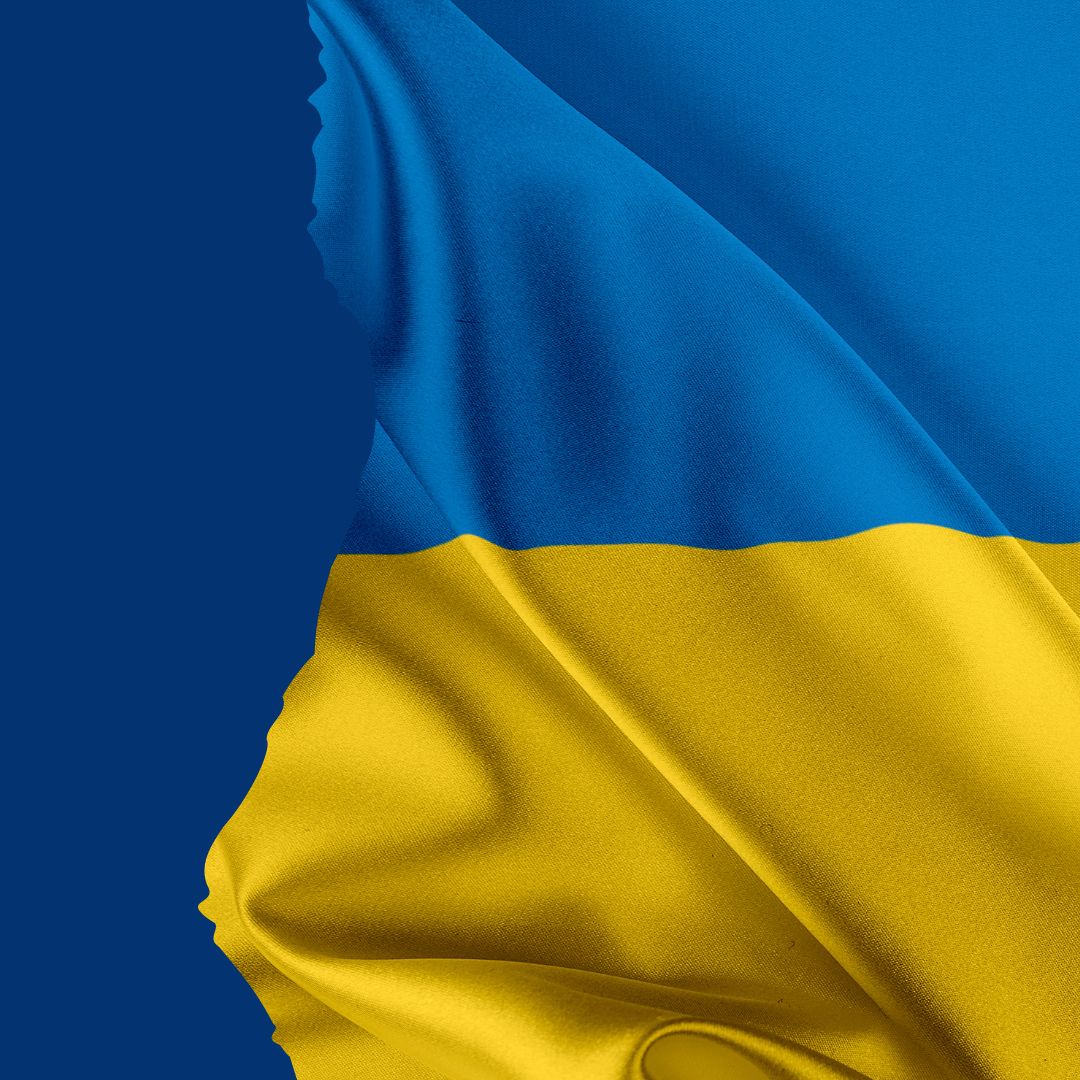
LGBTI people in the context of the war in Ukraine, like everyone, have many reasons to stay in Ukraine or to leave the country. Like their fellow citizens, LGBTI people are staying, supporting each other, providing mutual aid, and fighting against the Russian invasion. LGBTI people, however, face additional barriers to fleeing the country, including structural homo- and transphobia, which can occur in many contexts.
The United Nations has identified LGBTI people as a group specifically affected by the war in Ukraine
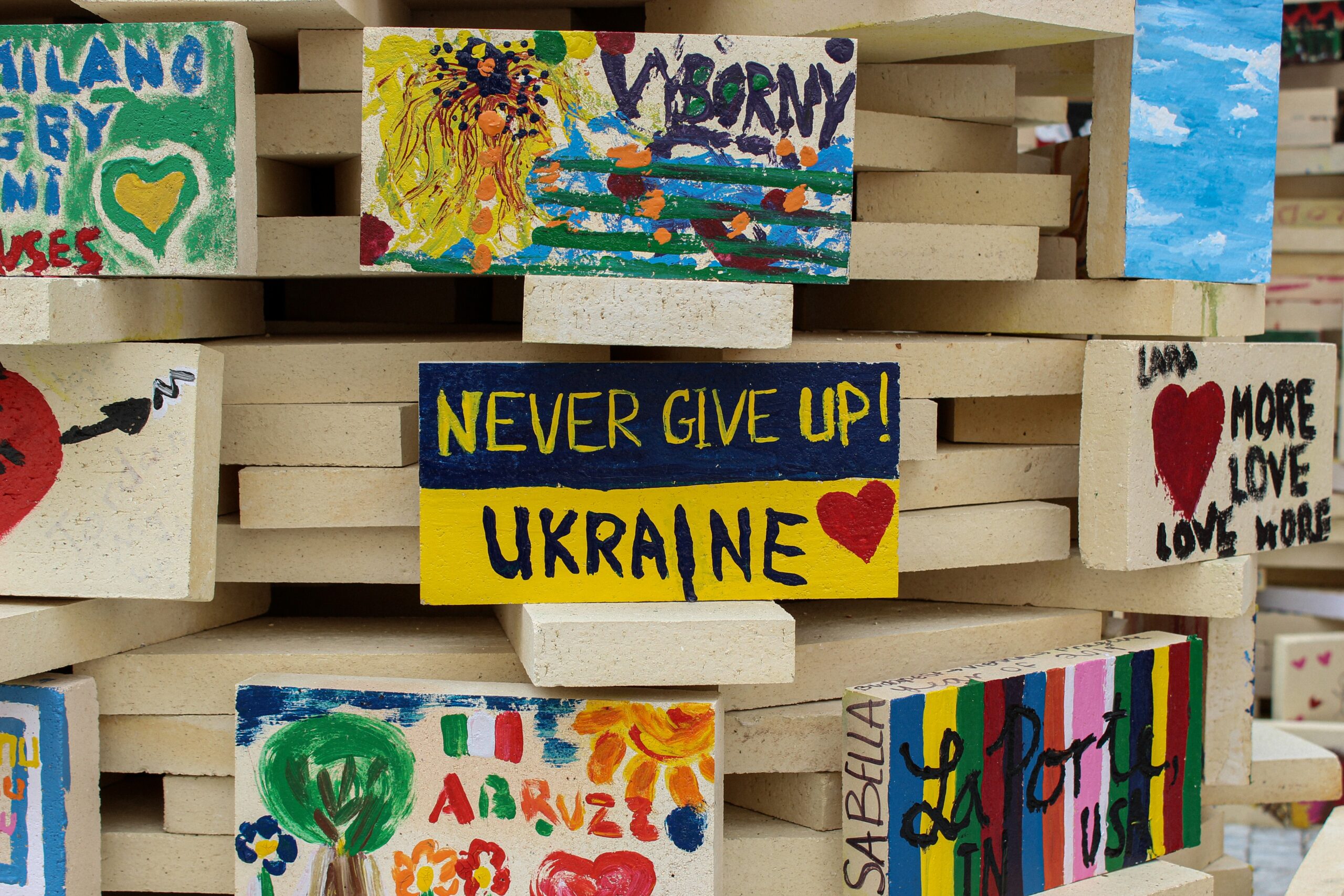
Working alongside ILGA-Europe, the UN has published recommendations For humanitarian actors working with LGBTI people affected by the war in Ukraine.
In all wars, LGBTI people have the same basic needs as everyone else, however, because of their real or perceived sexual orientation, gender identity and/or sex characteristics, they are at higher risk of exclusion and violence.
As ILGA-Europe’s Executive Director Evelyne Paradis explained in our previous blog: “Humanitarian crises affect everybody, however, some communities sometimes need a targeted response because of pre-existing vulnerabilities. These particular vulnerabilities make people feel unsafe when dealing with humanitarian organisations providing safe shelter, basic necessities food and medical aid. Not knowing if they will be treated without discrimination, simply welcomed and be taken care of, is a barrier for people in accessing humanitarian support.”
This is why ILGA-Europe have worked together with the UN, via its Protection Cluster Ukraine, on a list of recommendations for humanitarian actors and service providers working with people affected by the war in Ukraine, so they can better understand and address the risks faced by LGBTI people staying or fleeing the country.
Here are the core recommendations:
Ensure inclusive programming, advocacy and responses
- Collect data that is disaggregated by sex, gender, age and disability as well as data relating to specific protection needs, risks and barriers LGBTI people face.
- Map presence and reach out to LGBTI organisations to learn about their work.
- Establish specific LGBTI reception measures, such as gender-neutral options on registration forms or special hours and days for LGBTI people to register.
- Encourage the active participation of LGBTI individuals in programmes and activities.
- Link specialised LGBTI centres and shelters to the humanitarian aid system.
- Include staff from different genders and backgrounds
- Address barriers for LGBTI people to access social services and programmes
- Include funding opportunities for LGBTI-led organisation in your resource mobilization actions.
- Raise awareness of the situation of LGBTI people affected by the war
- Advocate for non-discriminatory provision of services to LGBTI people by humanitarian actors, civil society organisations, governments and others.
Create safe spaces
- Ensure that staff working in Ukraine are sensitive to the concerns and needs of LGBTI people.
- Respect individual preferences and privacy.
- Communicate through your staff members that your organisation is a safe space
- Seek out and create safe, confidential and effective referral systems and partnerships.
- Advocate for inclusive treatment by medical and healthcare professionals
- Facilitate links between LGBTI people in Ukraine and the wider LGBTI community
- Allow trans, intersex and non-binary people to choose the housing option, scattered-site housing or communal, they believe is safest for them.
Ensure accountability to the affected population
- Consult with LGBTI people on how they want to participate
- Ensure that LGBTI individuals are well informed about their rights
- Ensure that there is two-way communication with LGBTI people via their preferred channels.
- Provide a space where LGBTI people can meet safely
- Engage LGBTI people in gender-based violence prevention and response.
Integrating LGBTI inclusive Gender Based Violence risk prevention, reduction and mitigation in the context of war in Ukraine

The ongoing war in Ukraine has resulted in the need for immediate action to address the needs both of a significant population of Ukrainians fleeing the armed conflict, as well as for those who are staying in Ukraine. LGBTI people are often amongst vulnerable groups in crisis situations and specific attention is needed to ensure that they are safe, have safe refuge and that some fundamental basic needs are being met – ensuring they are not left behind.